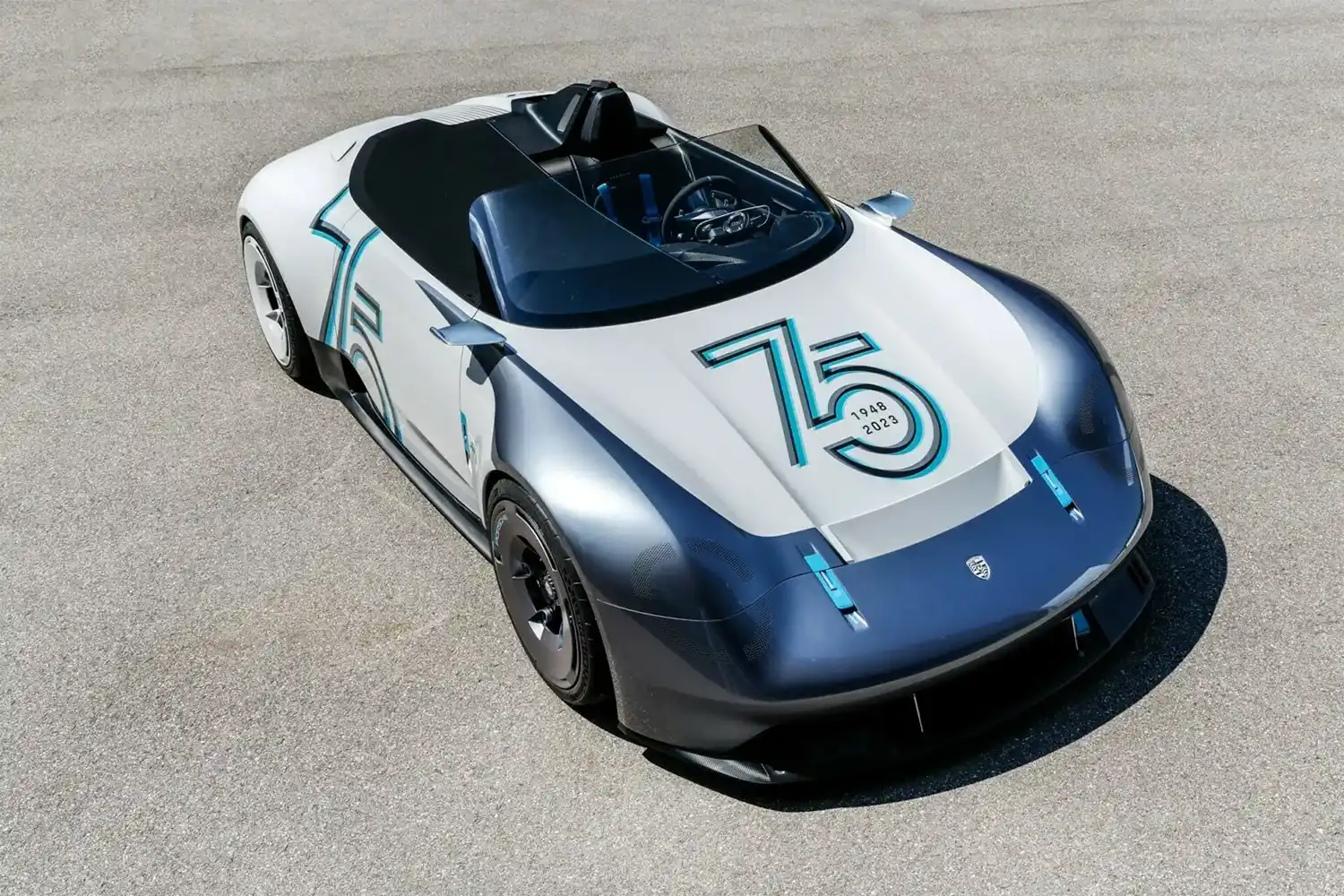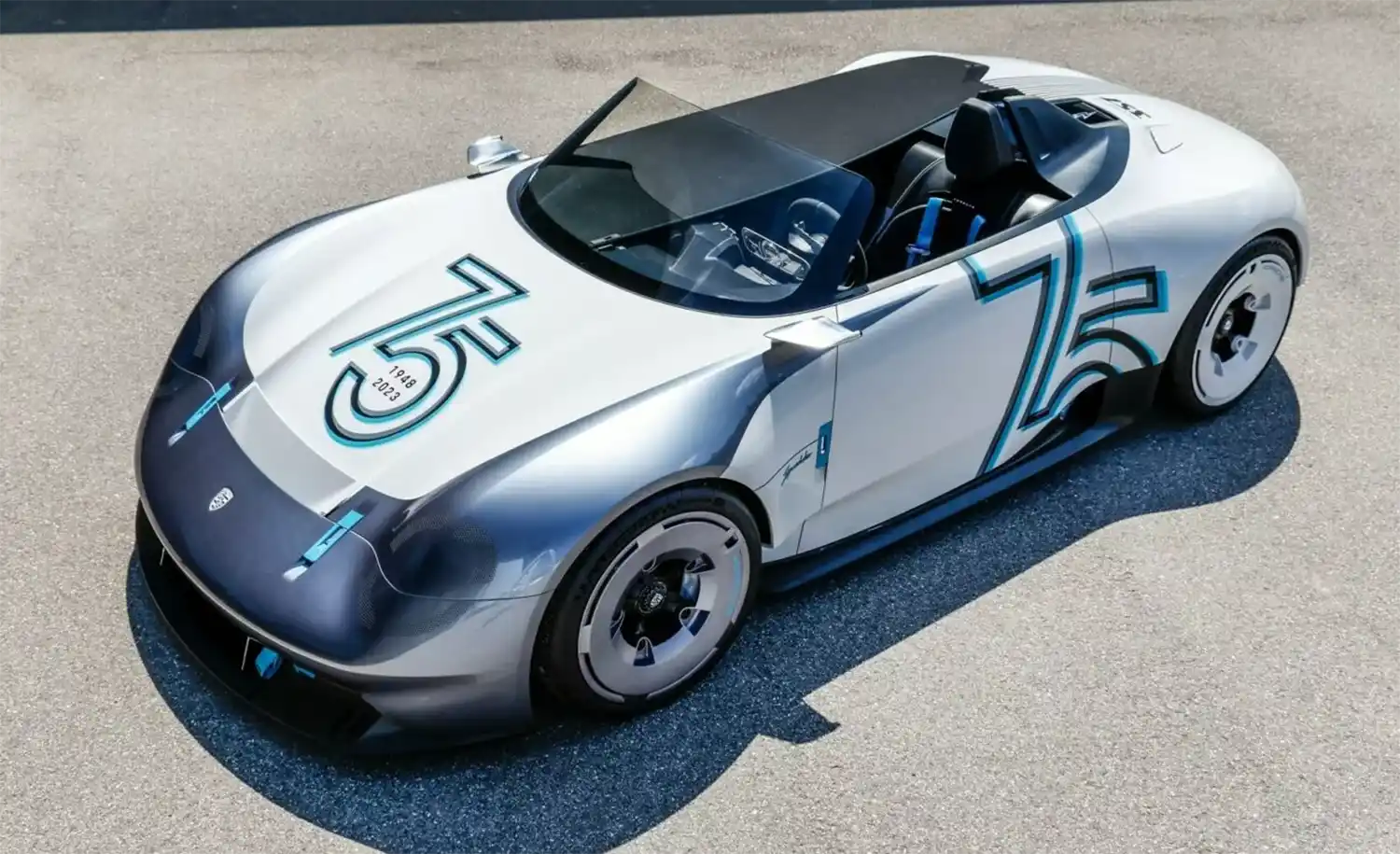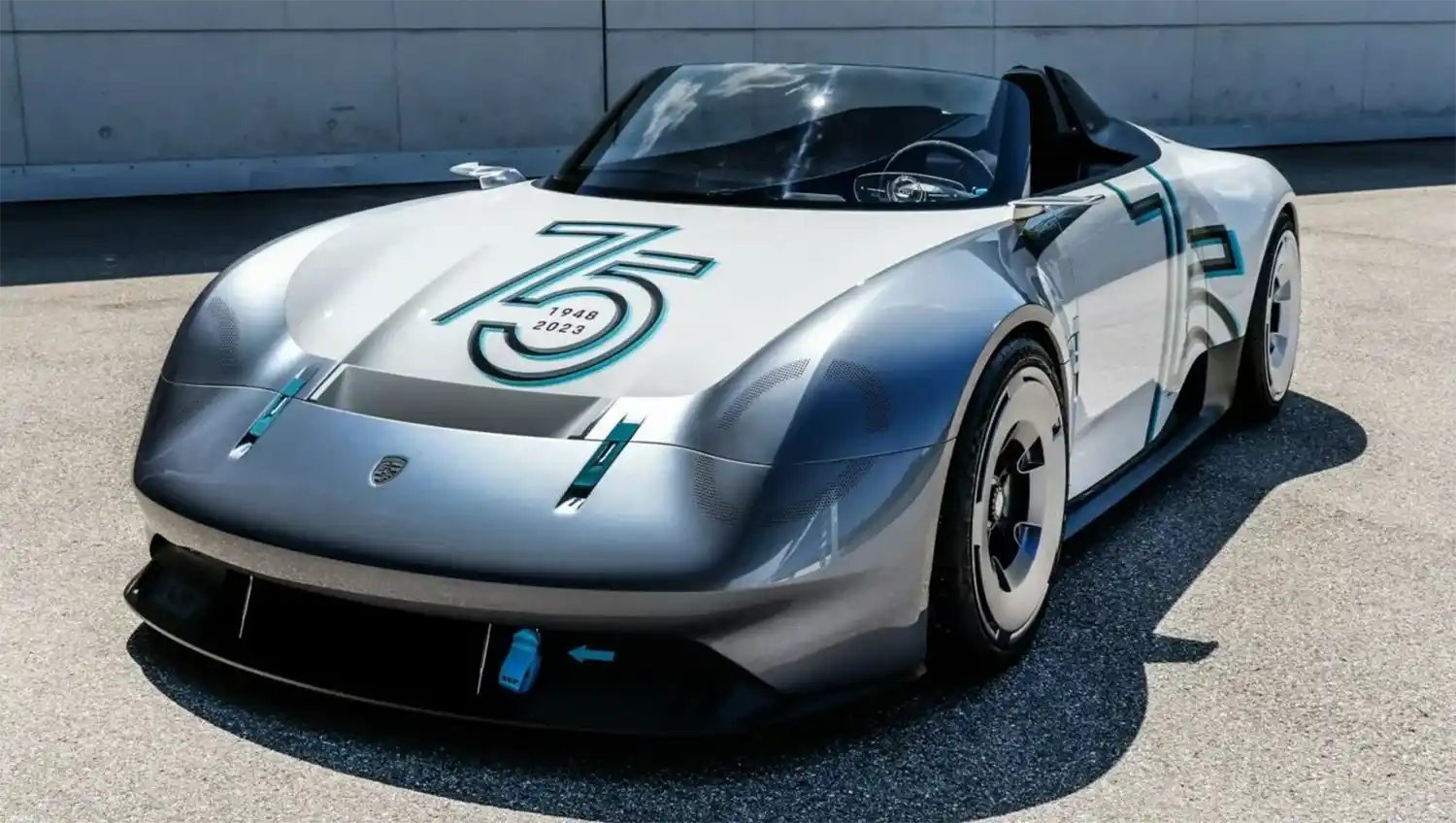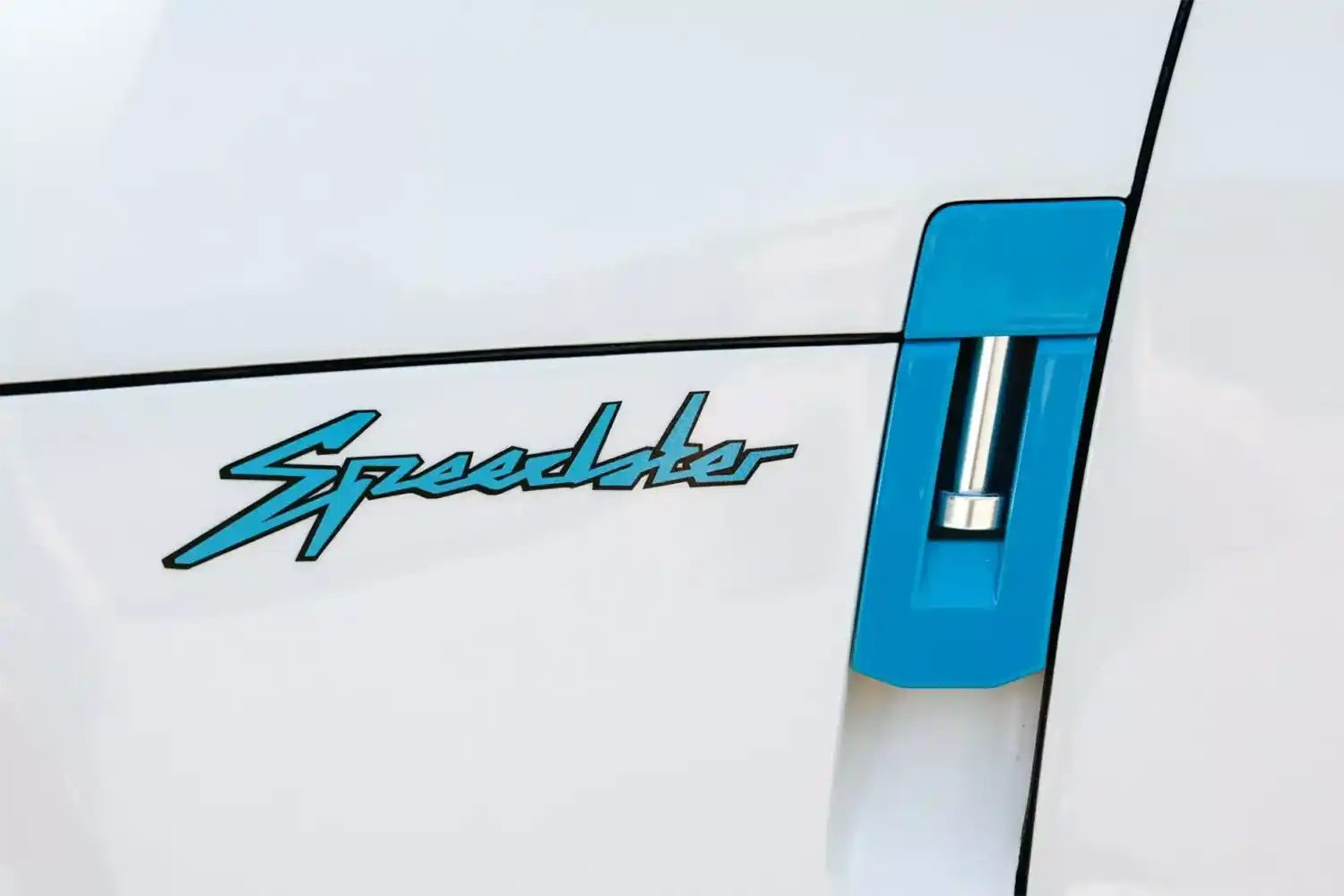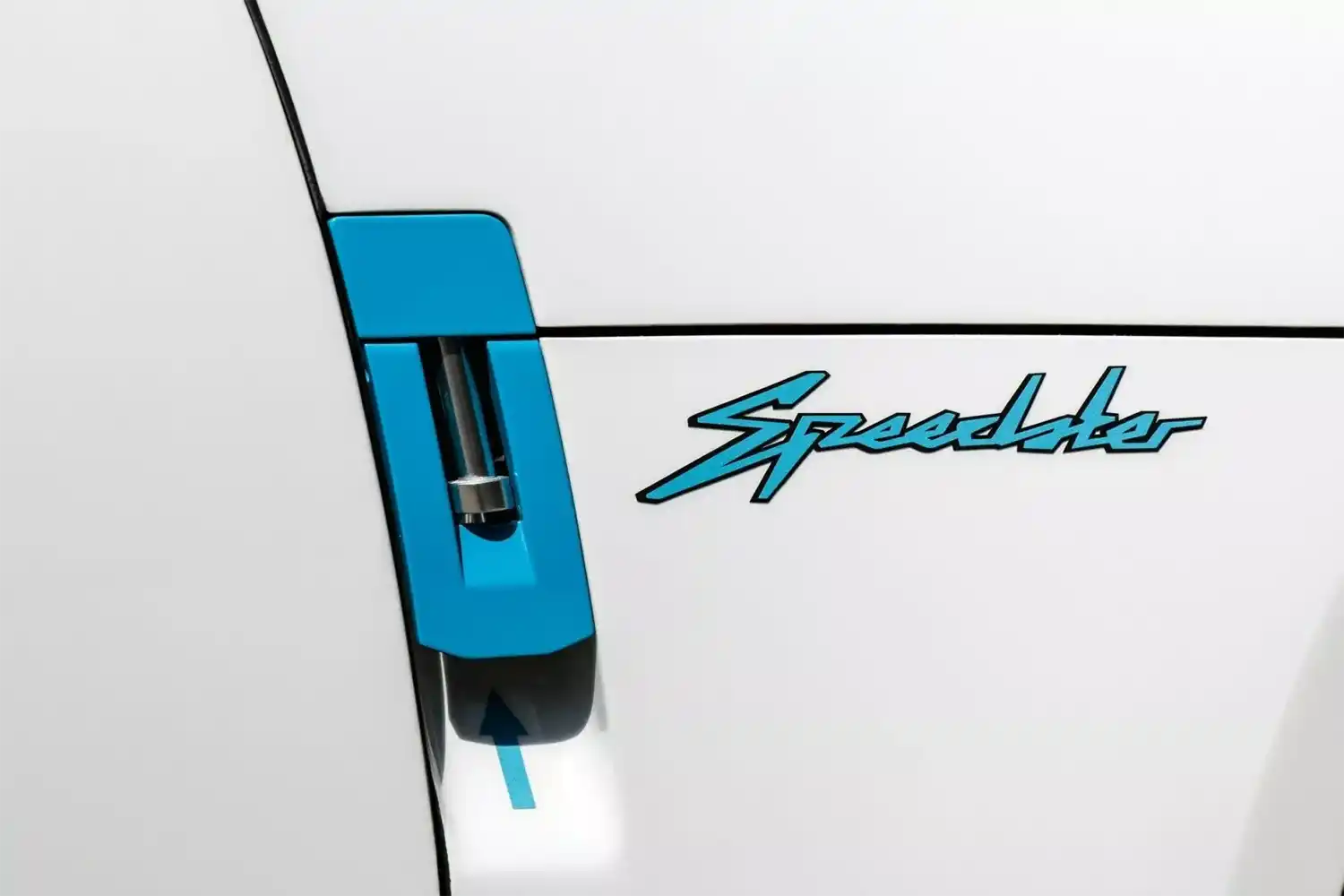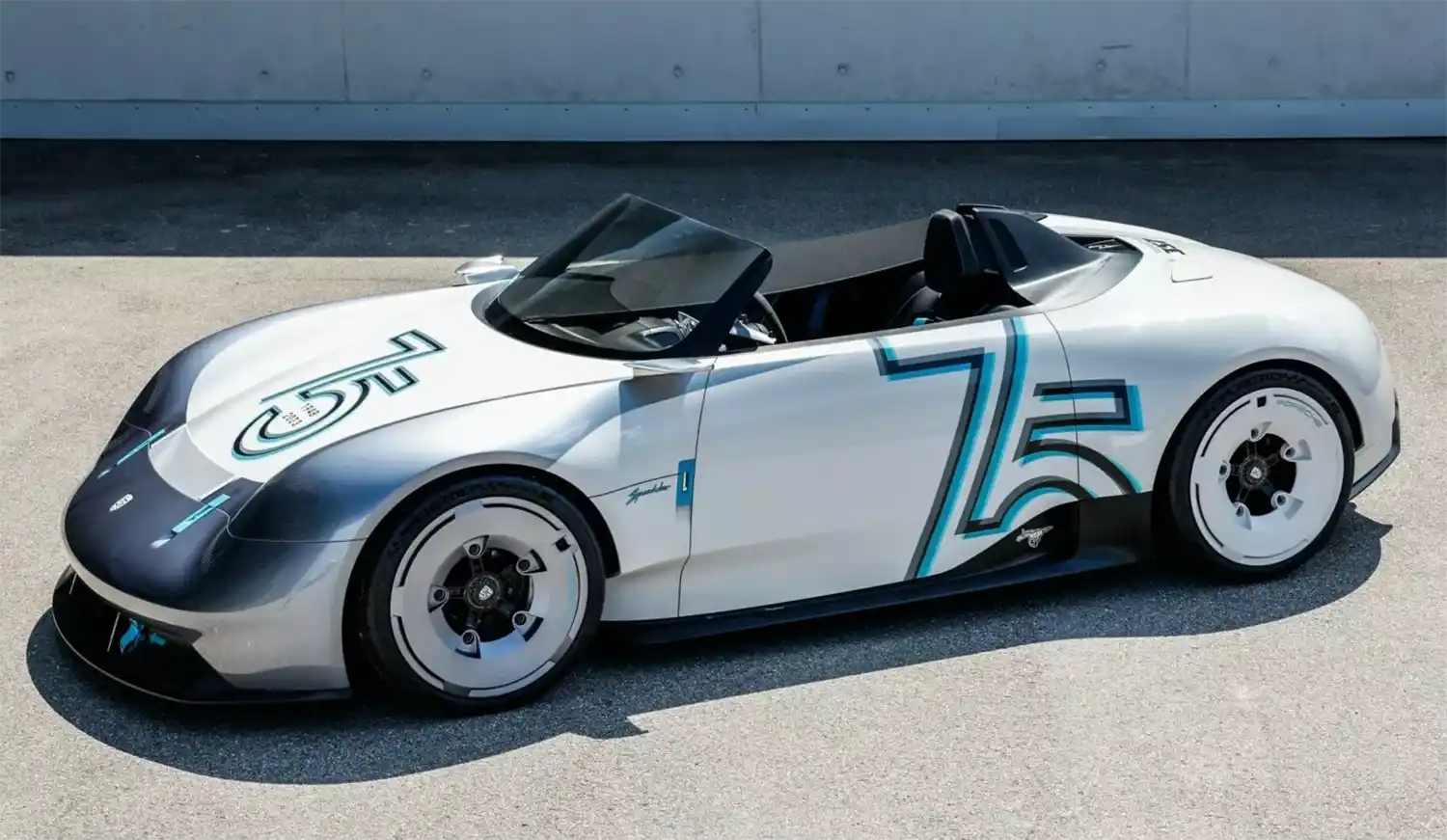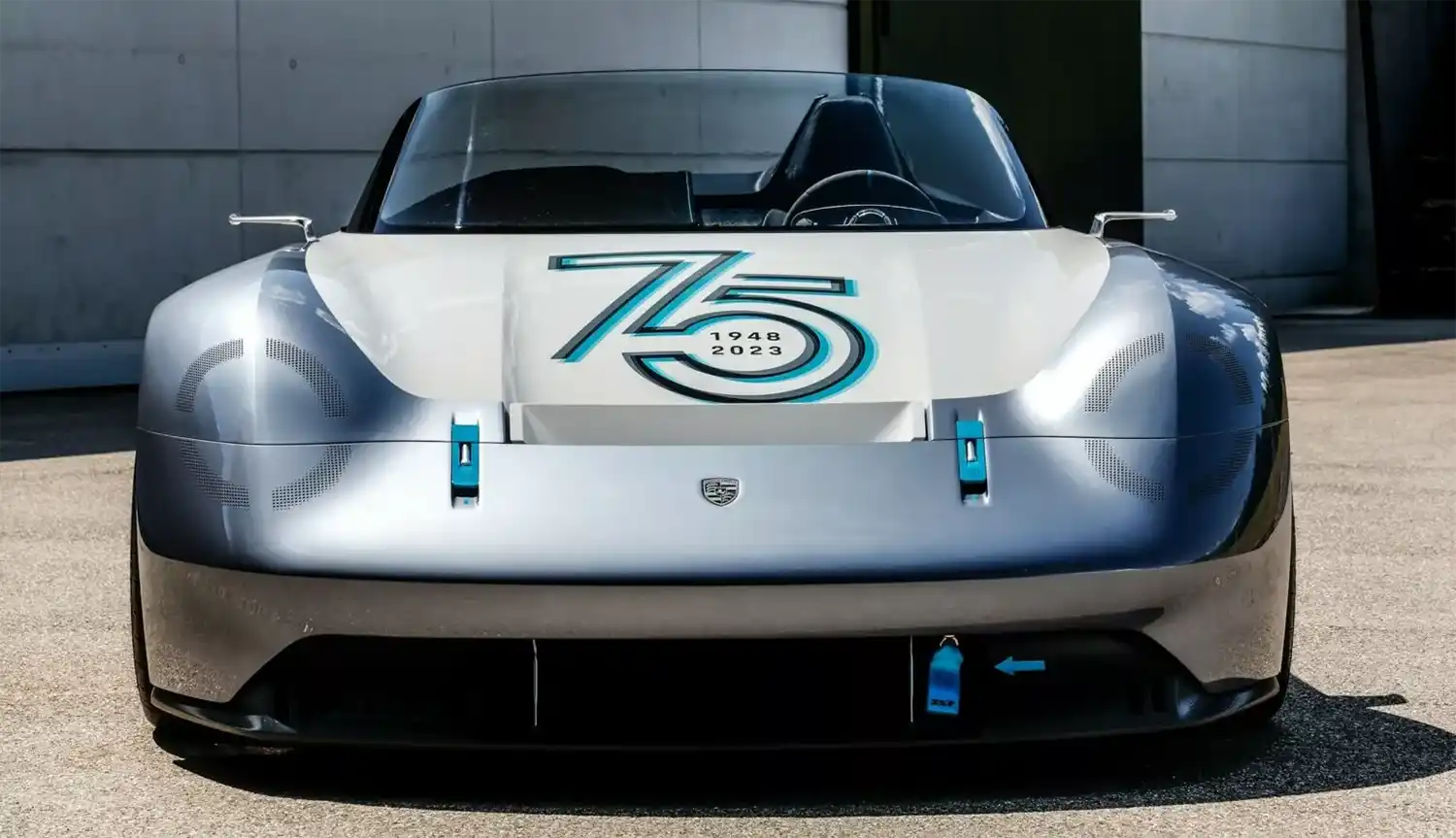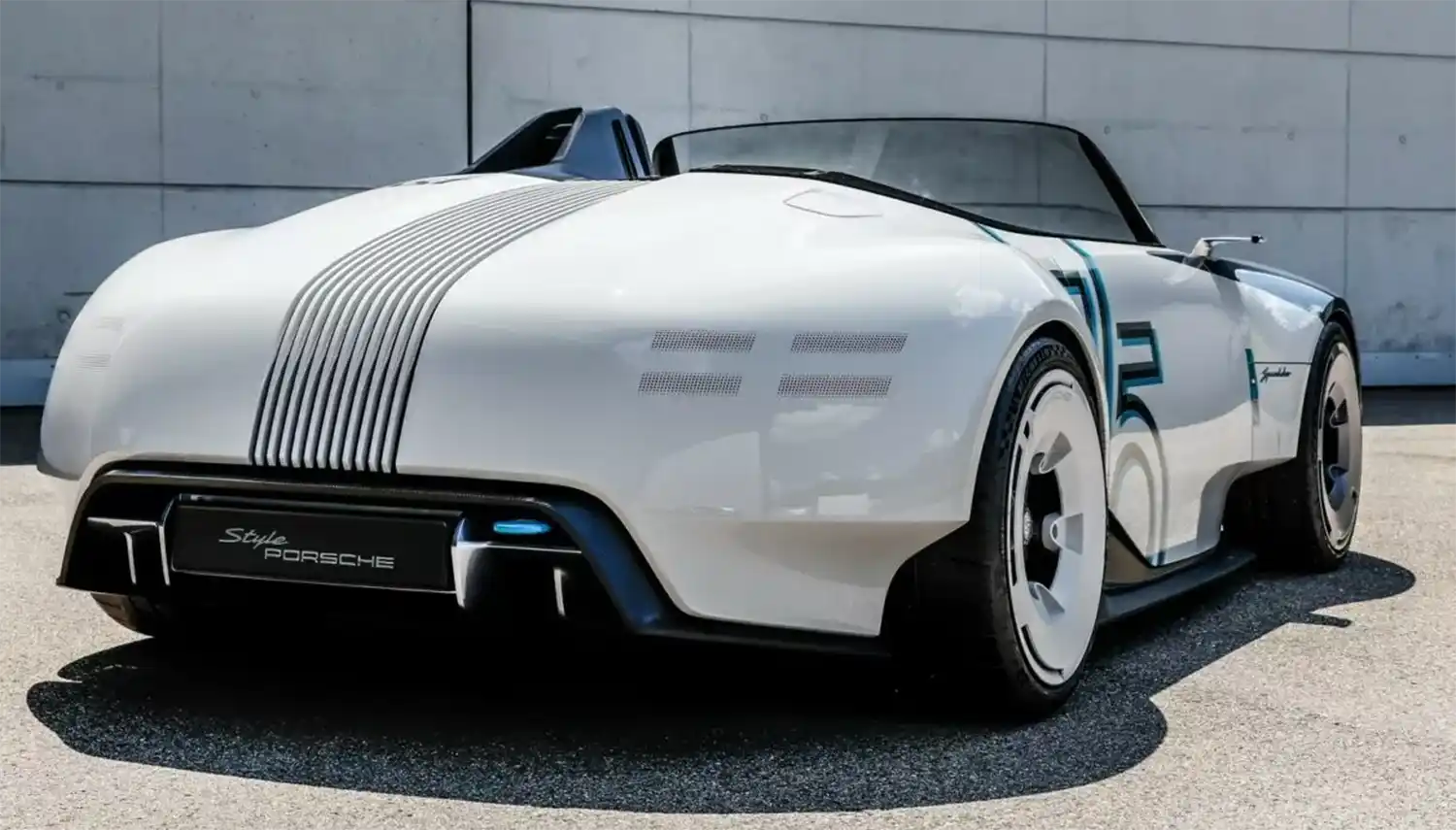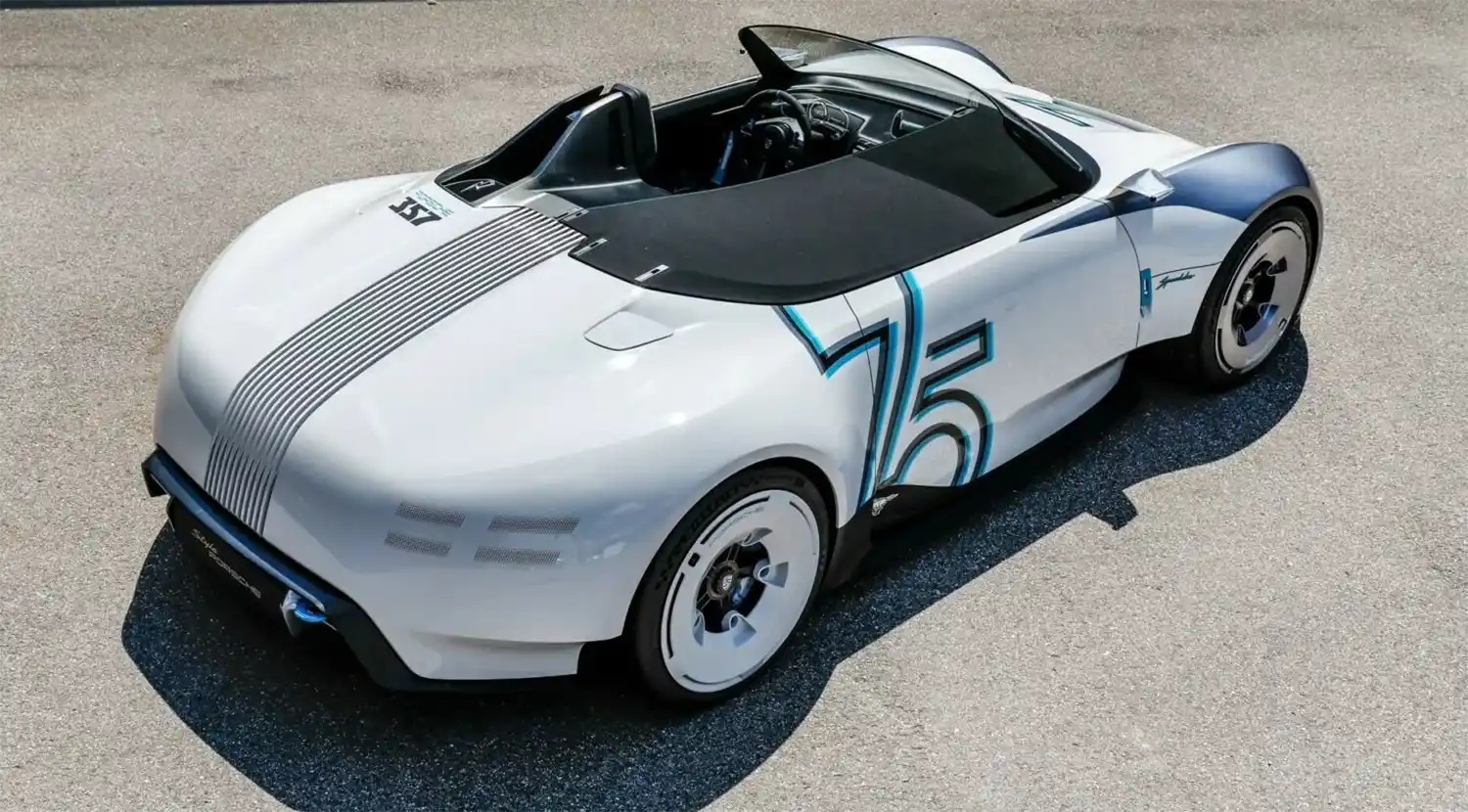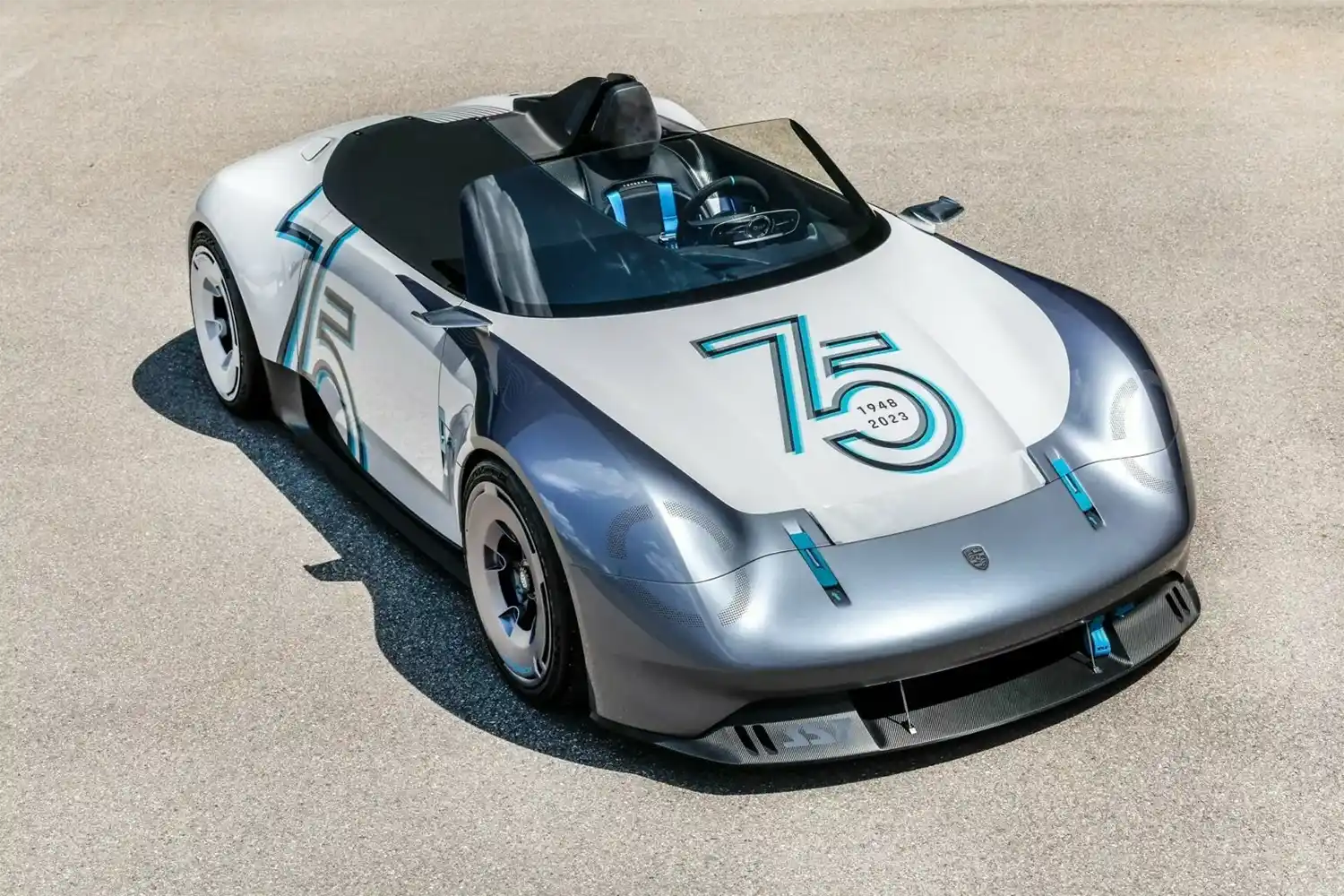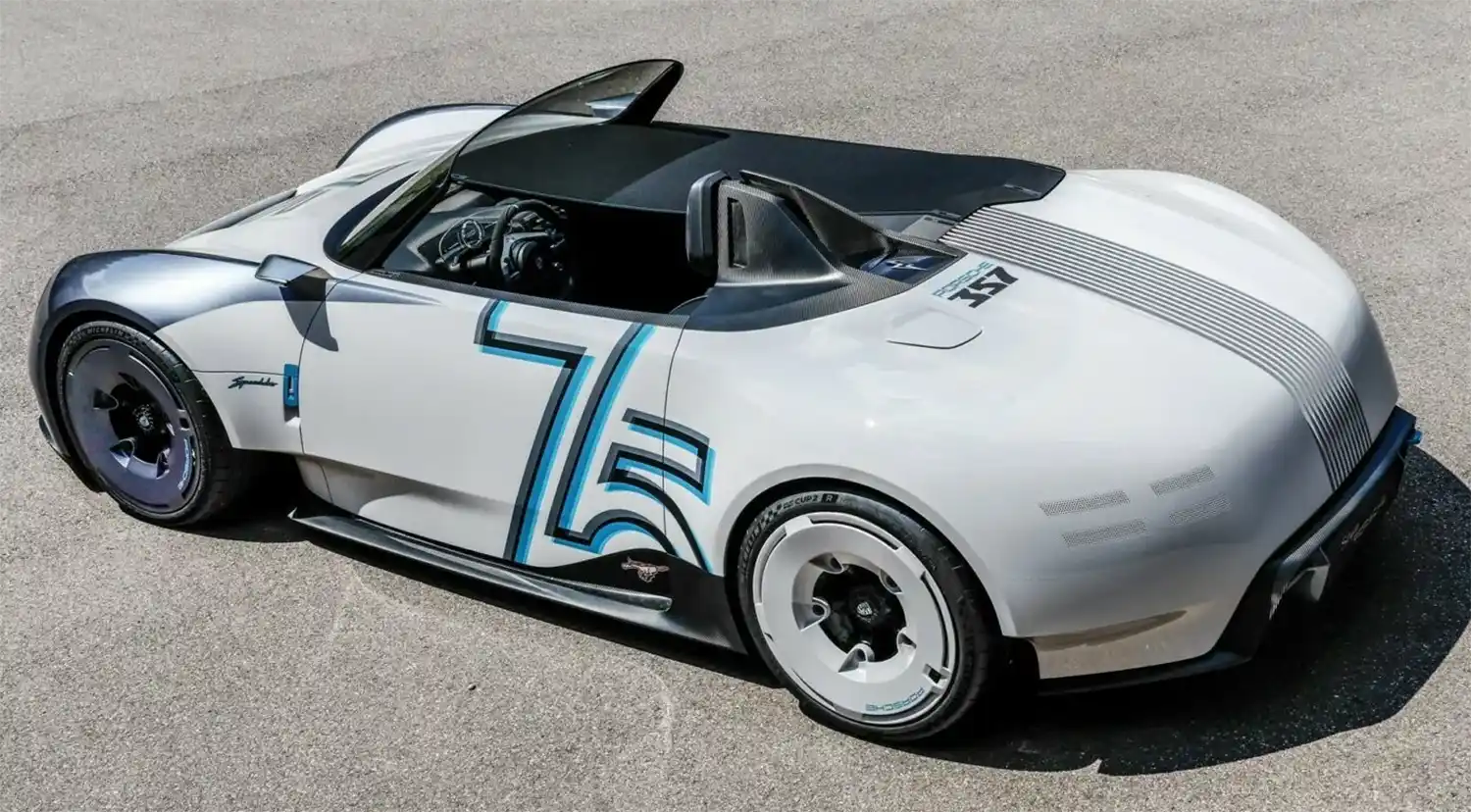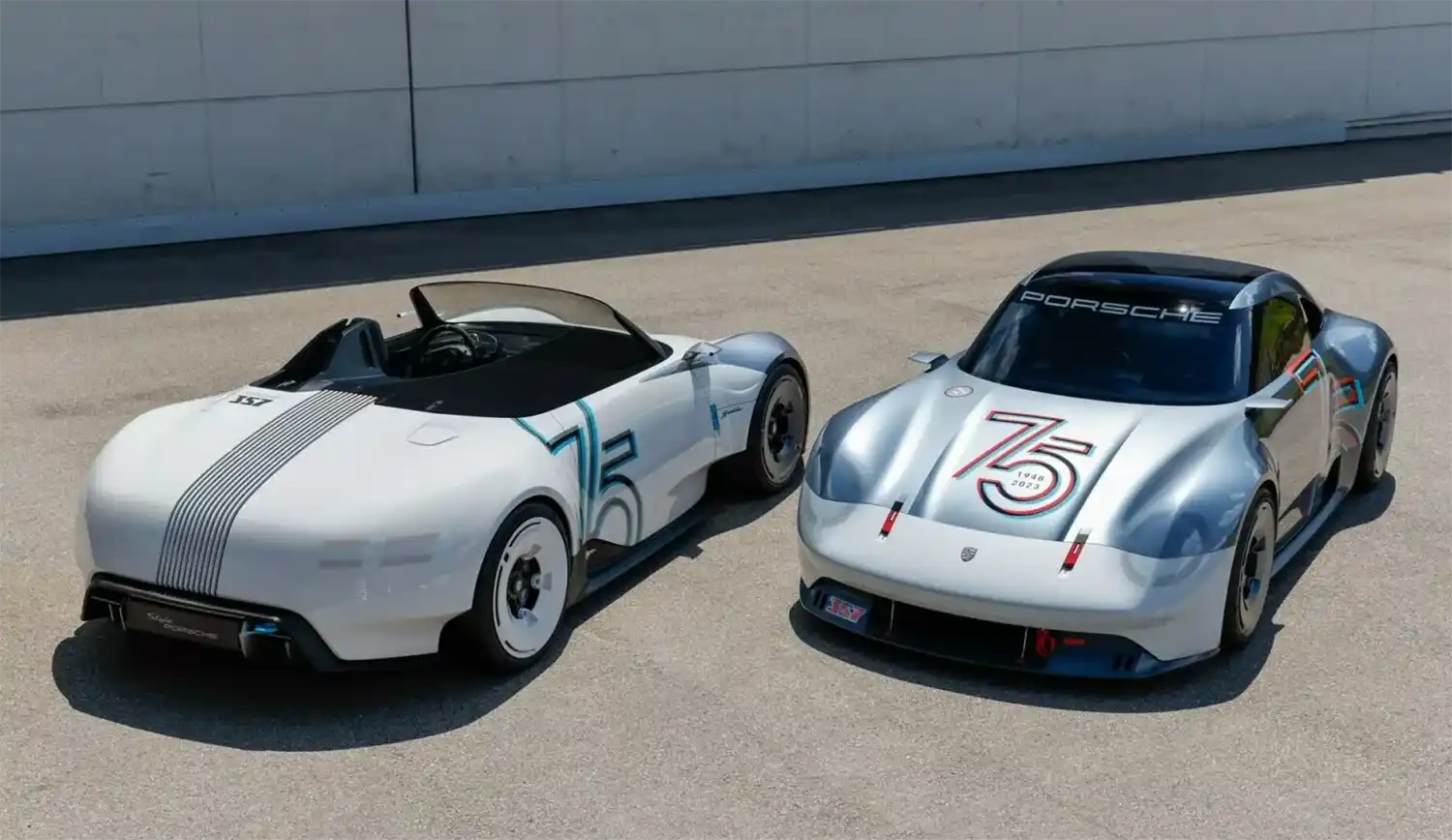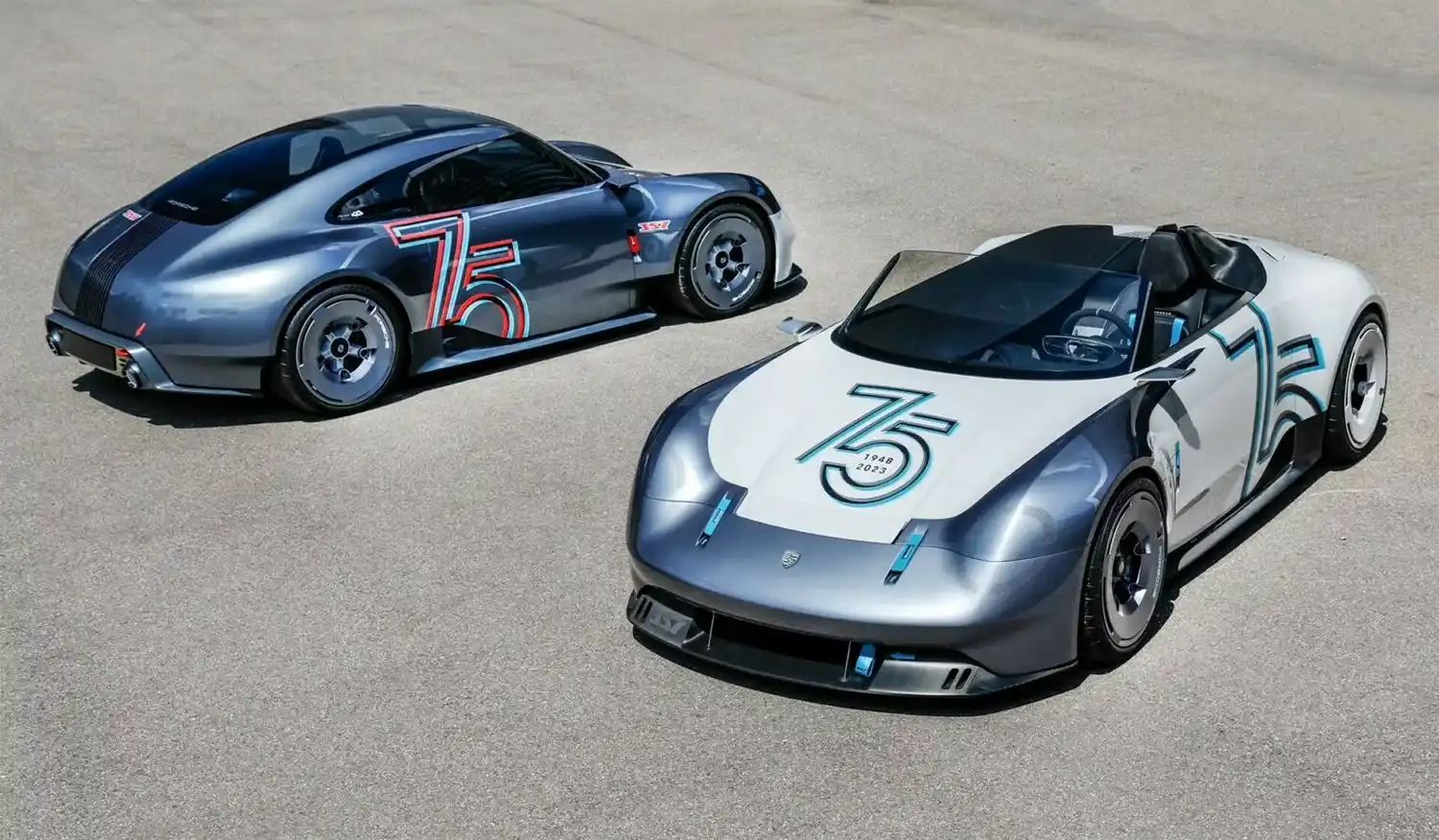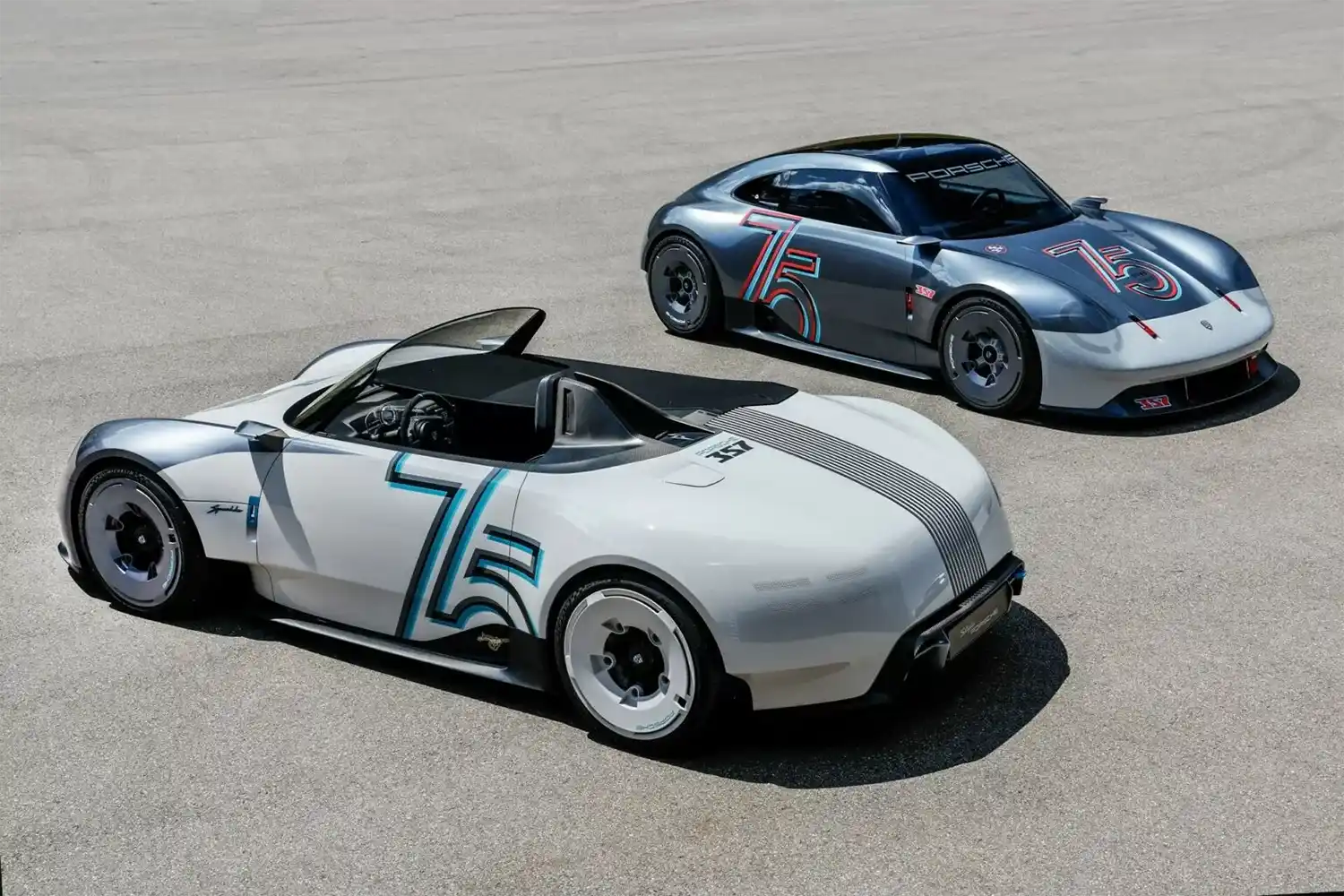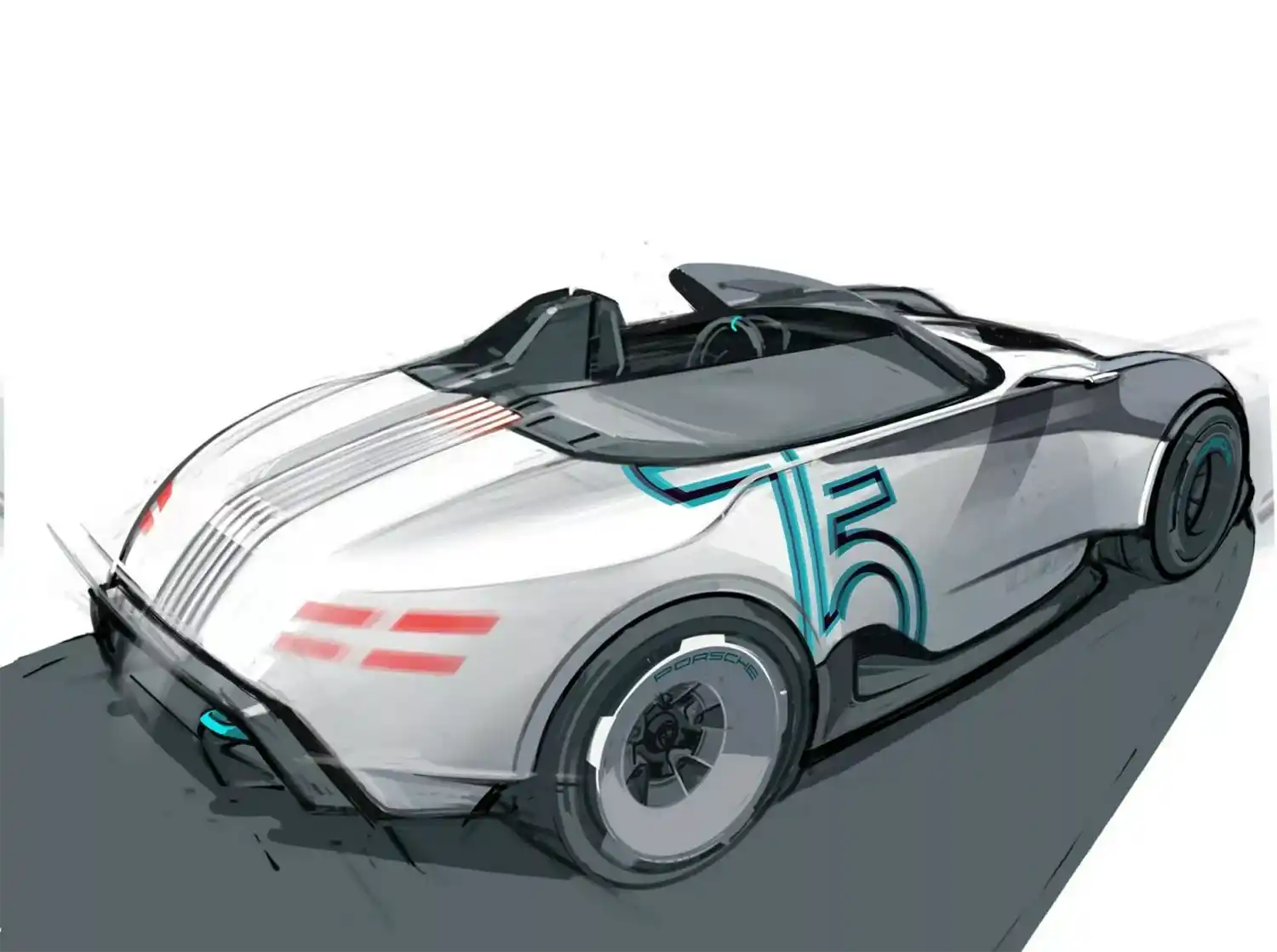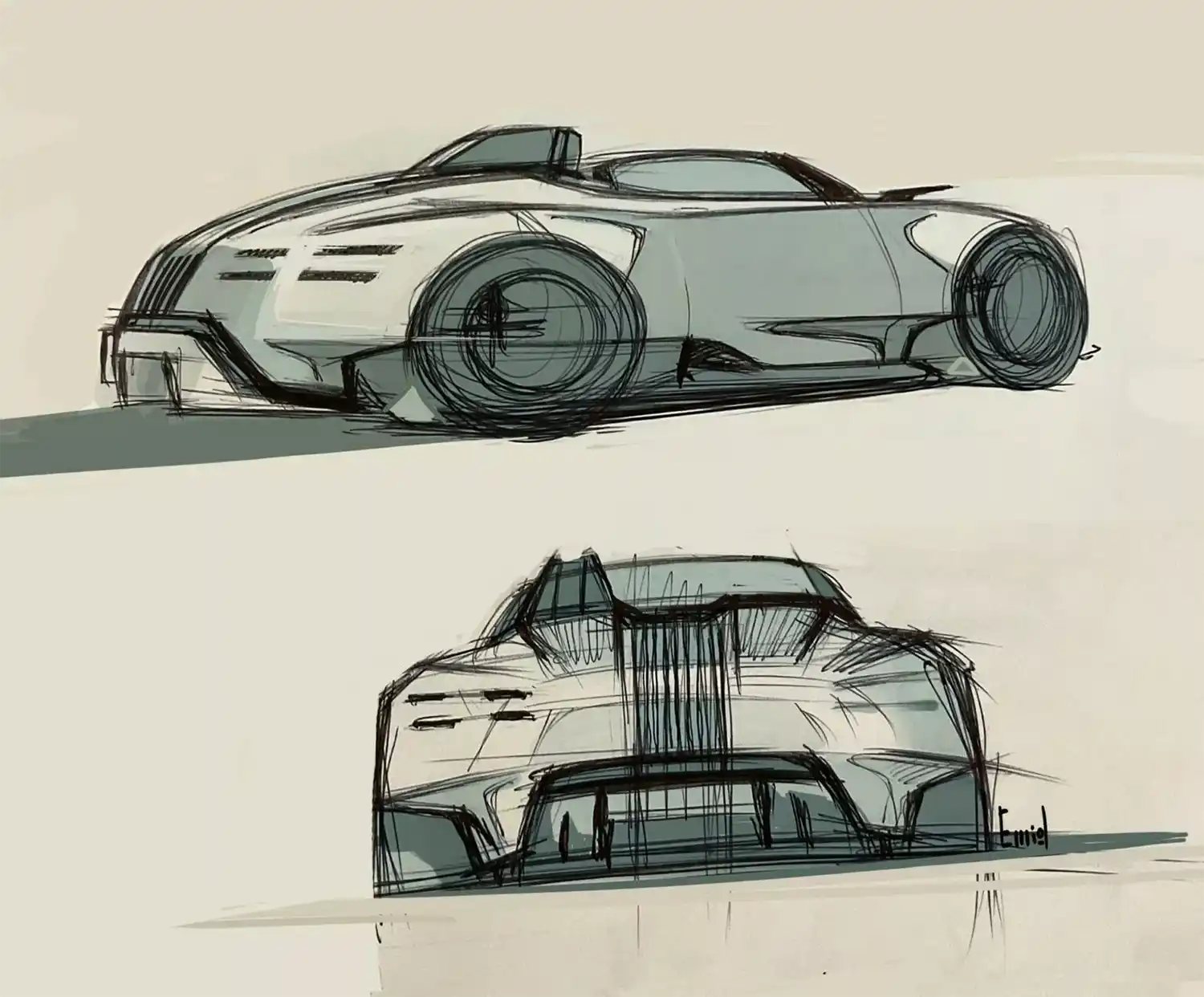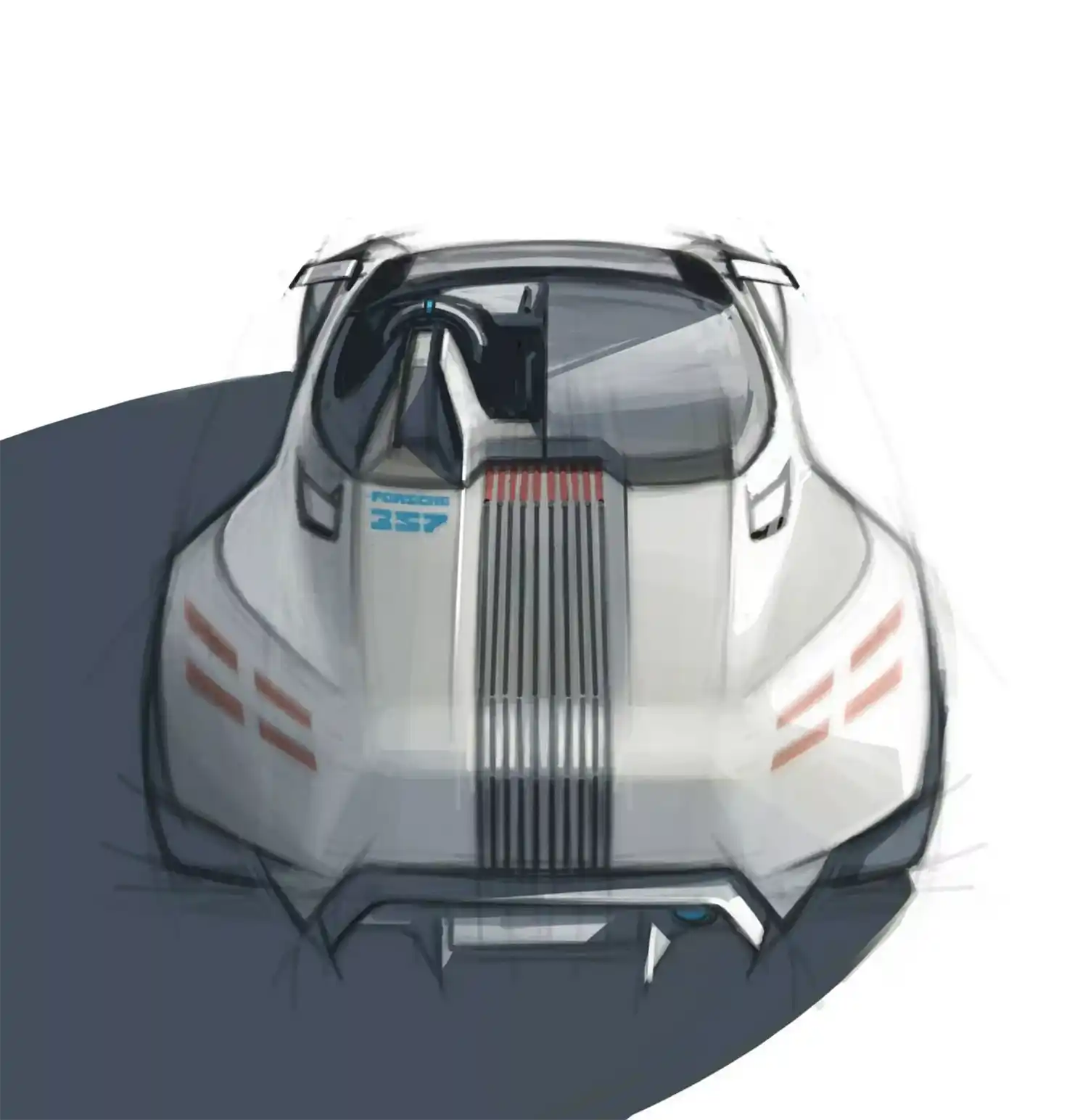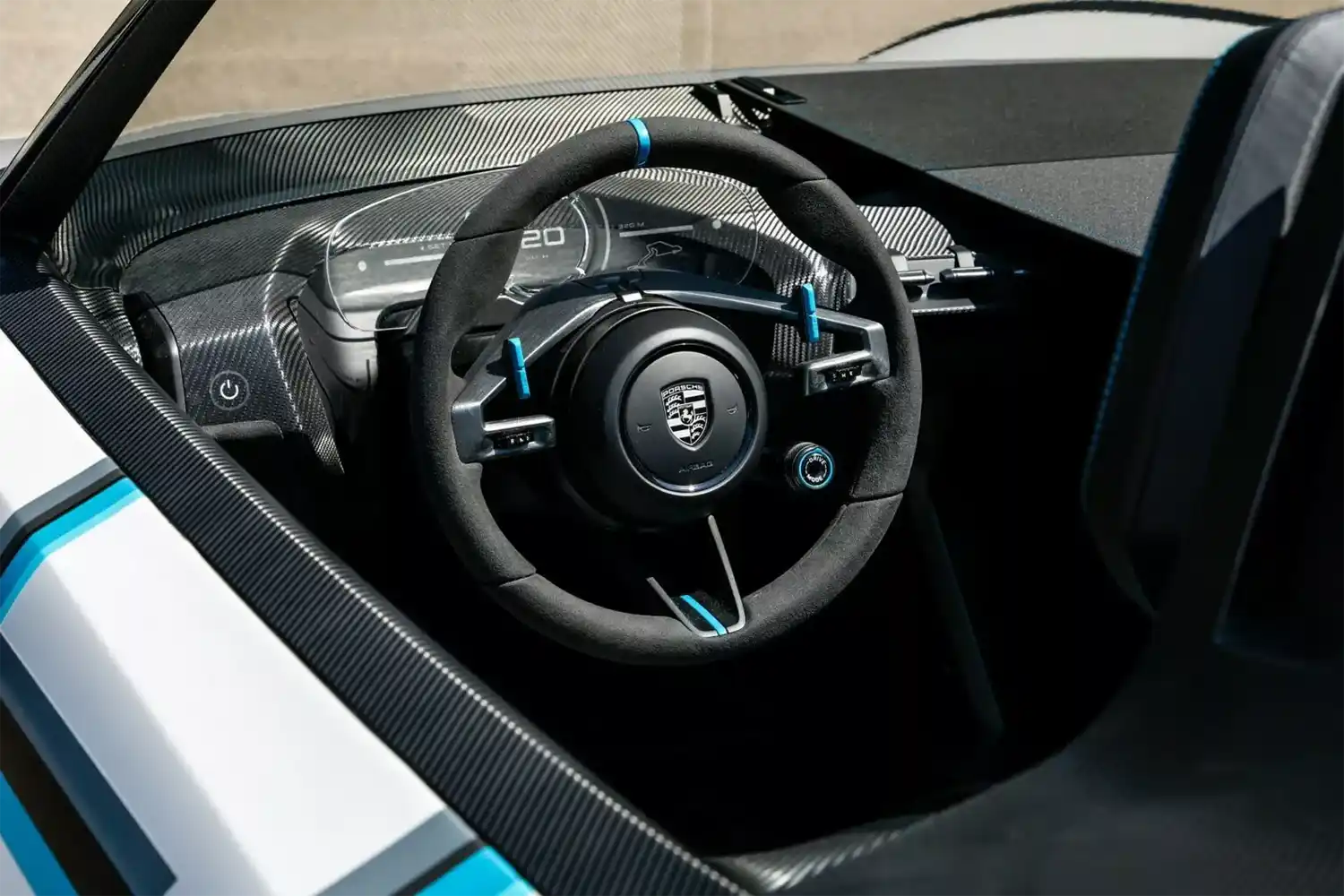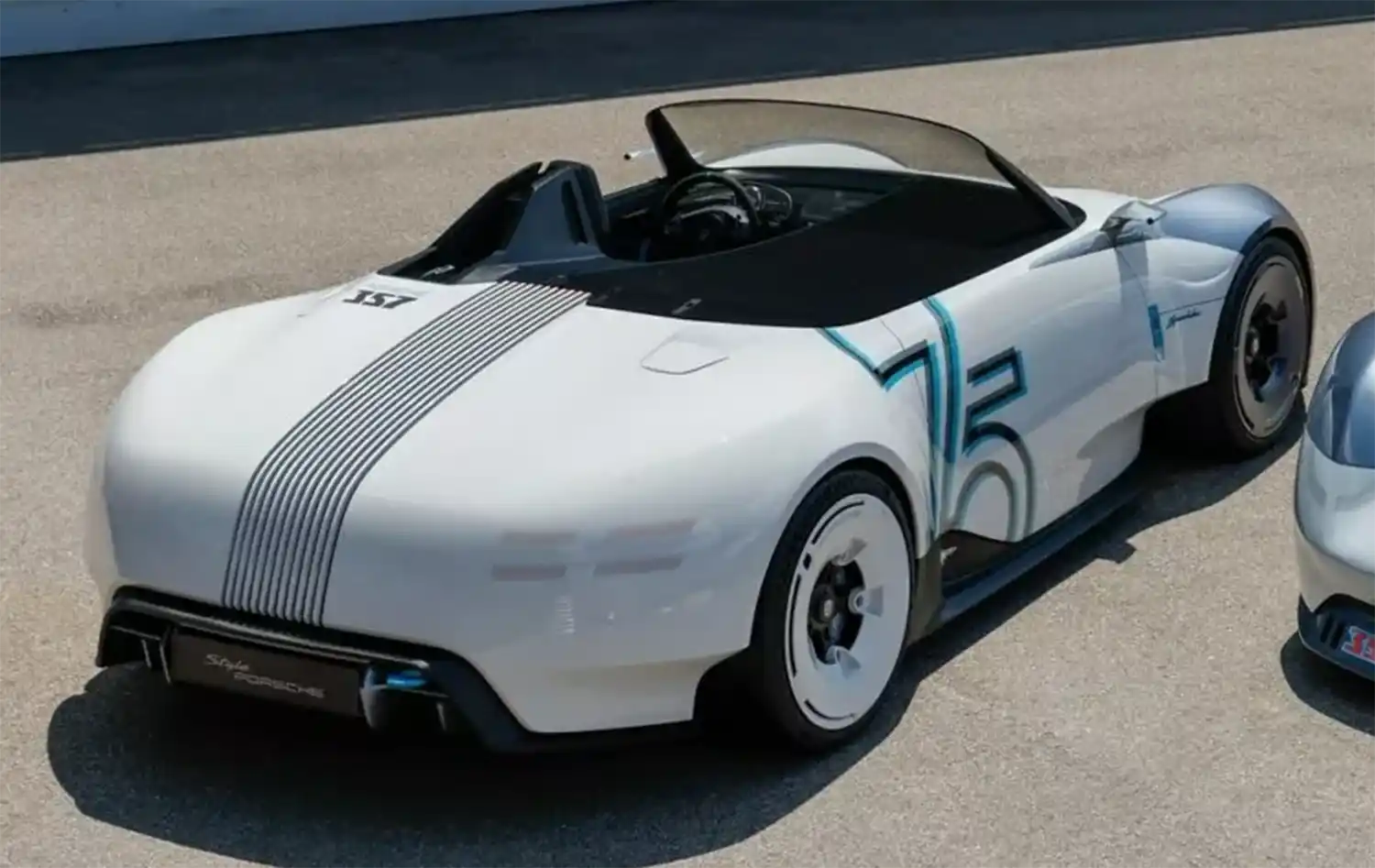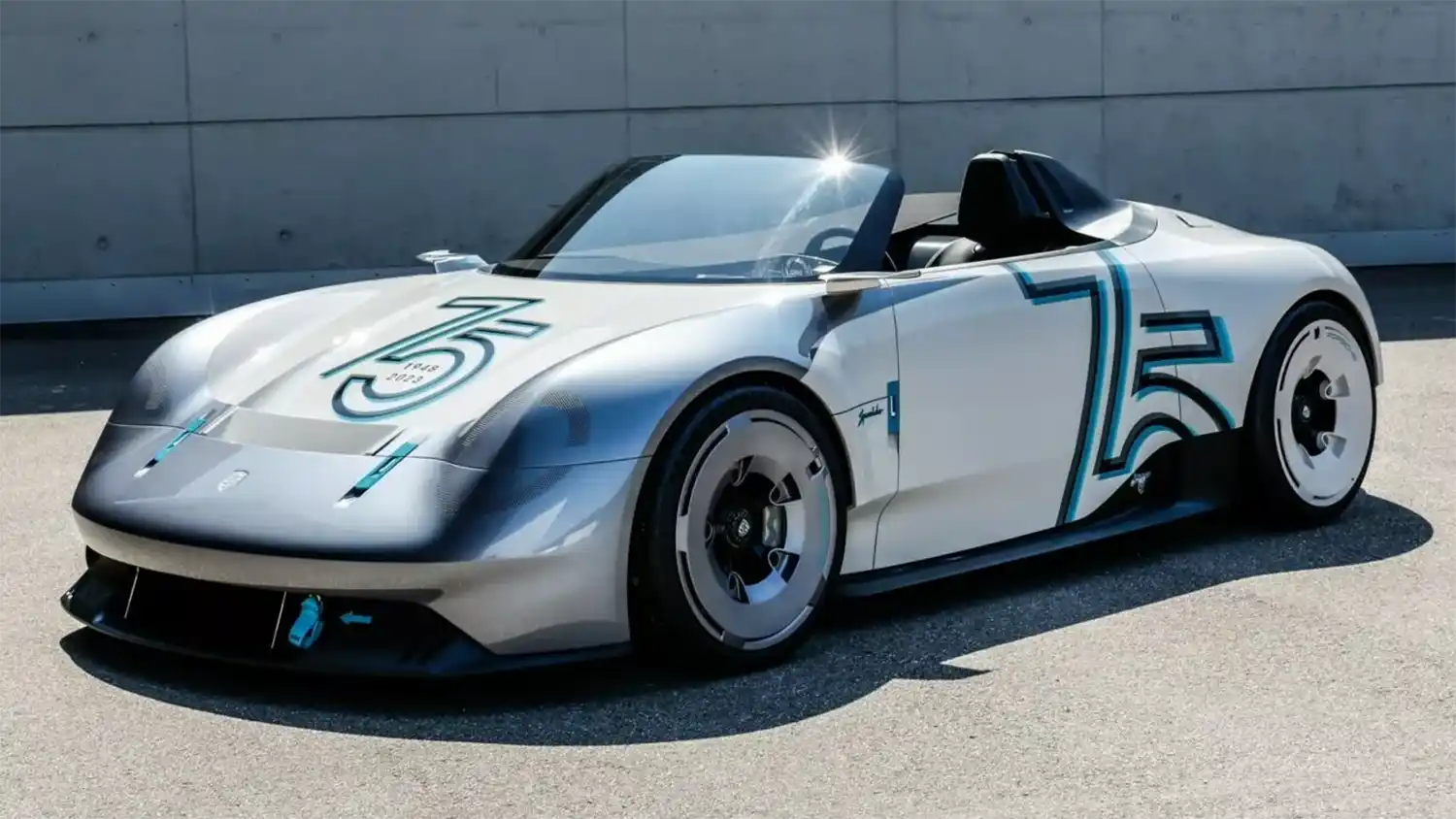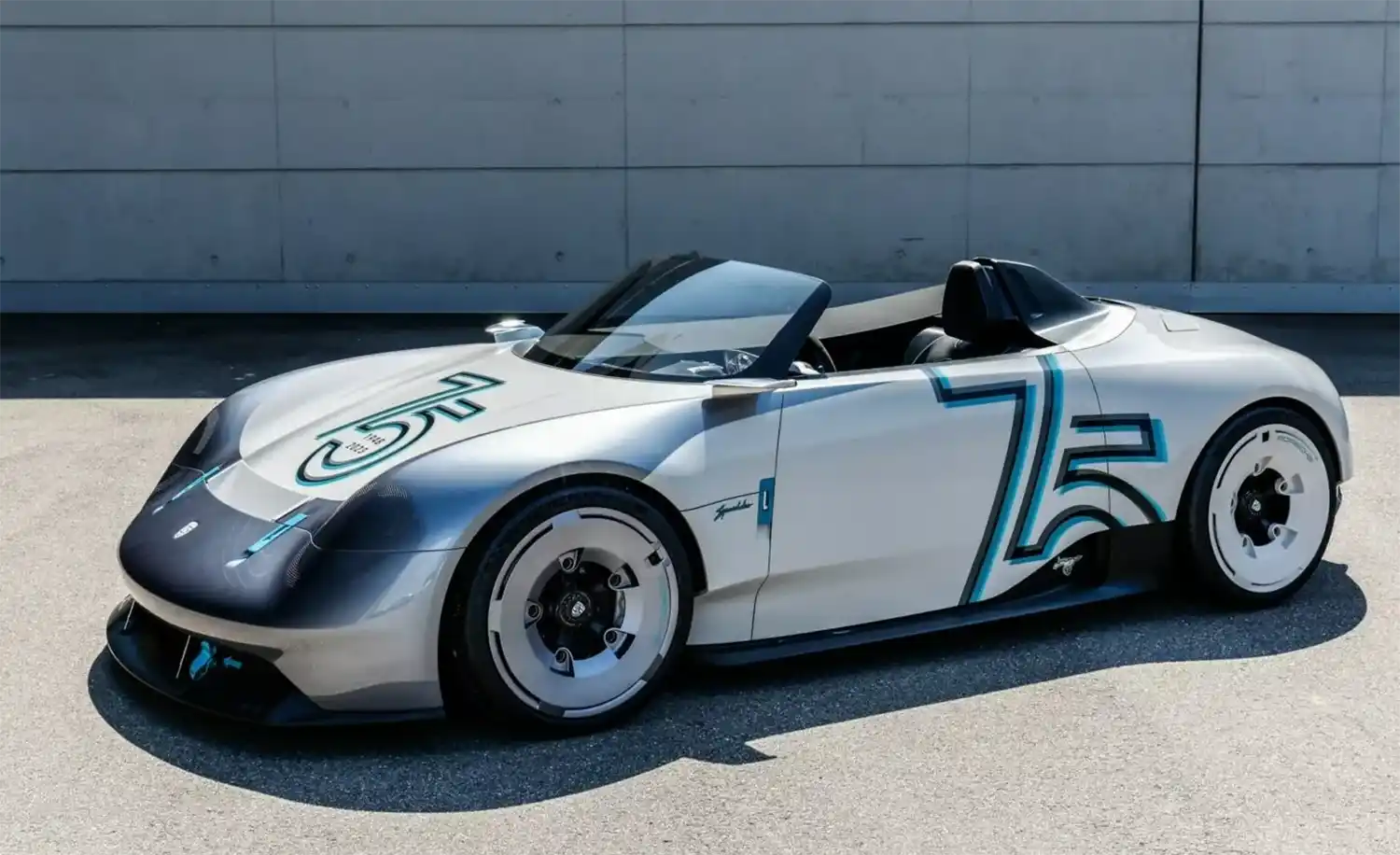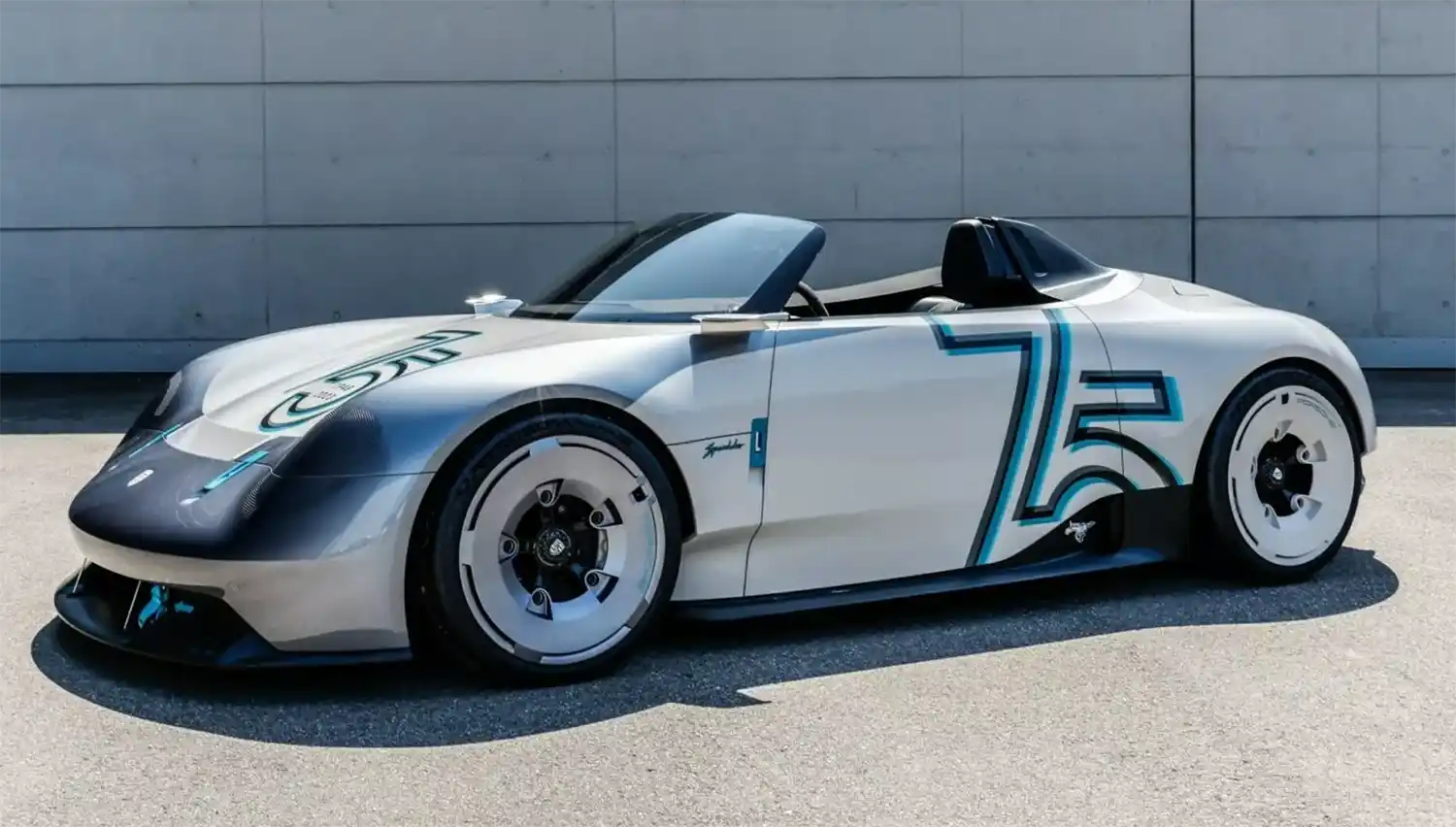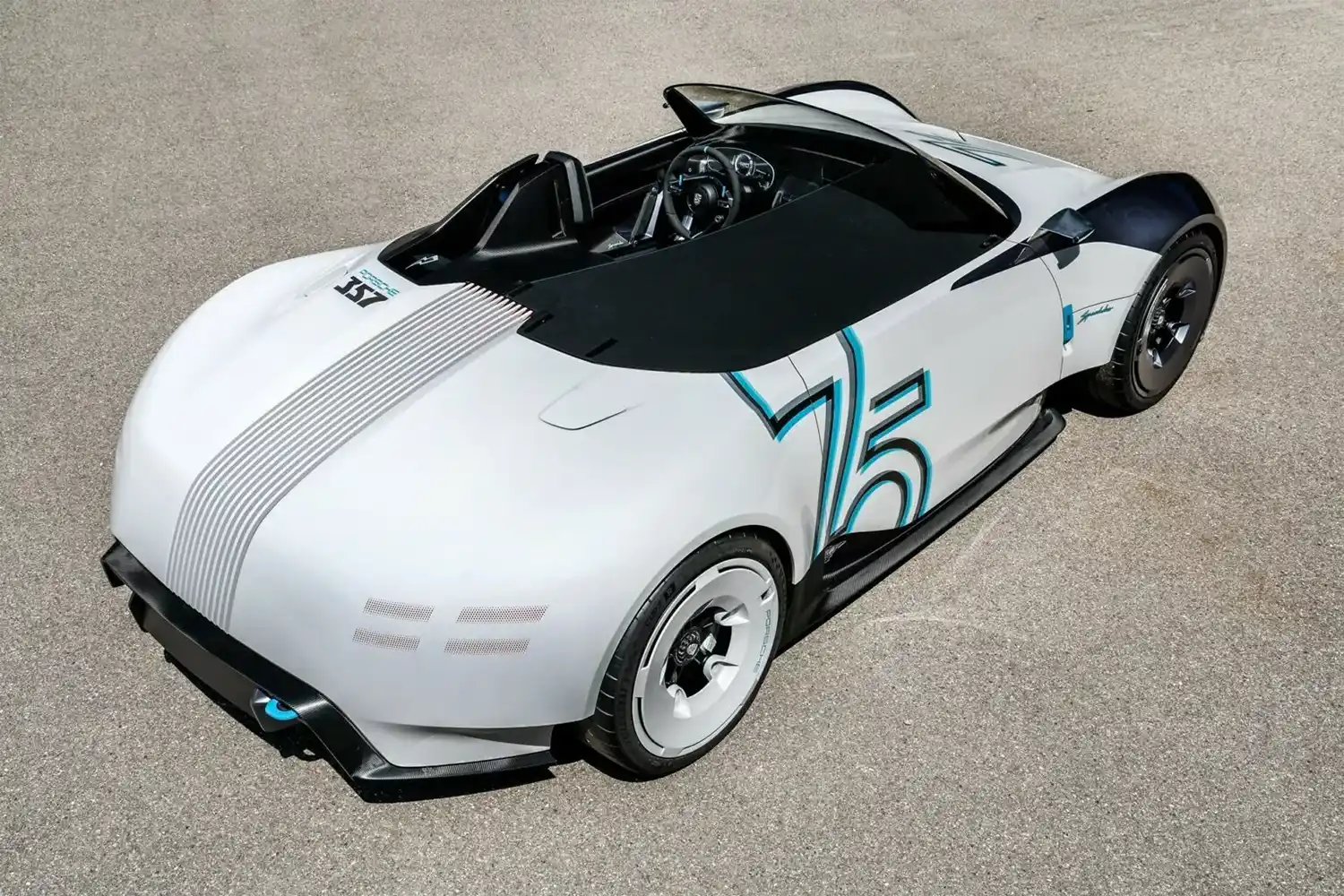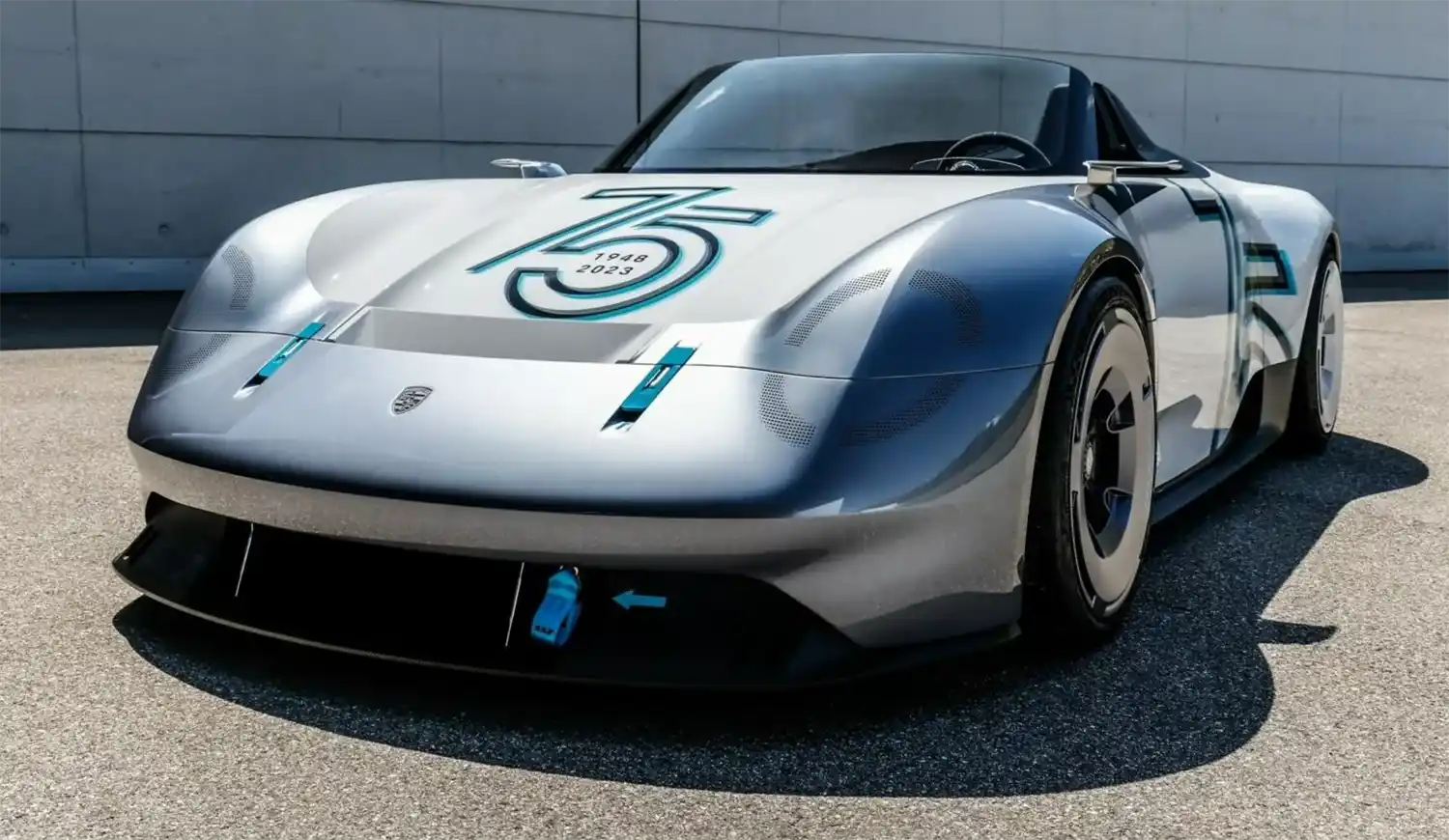
The Vision 357 Speedster is based on the technology of the Porsche 718 GT4 e-performance. So the electric motors and battery technology come from the Mission R and the chassis from the 718 GT4 Clubsport. Following its world premiere at the 2023 Goodwood Festival of Speed, the design study will be on display at the Rennsport Reunion in the USA at the end of September 2023.
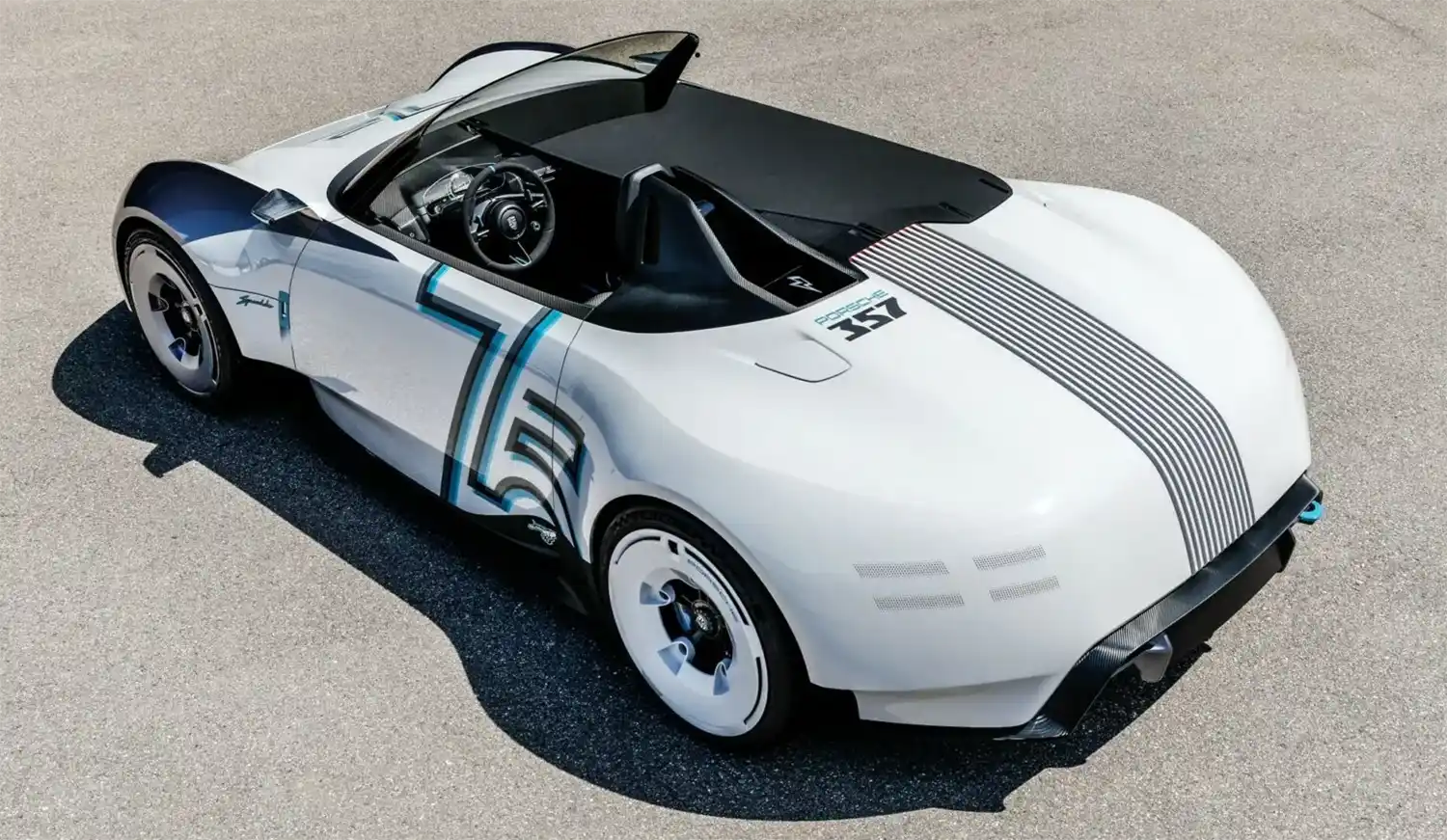
Exterior design: shortened front windscreen and one-sided tonneau cover
The concept car has the squat, shortened windscreen that is typical of a speedster, lending even more emphasis to the car’s monolithic body. Spanning the right side of the car is a tonneau cover of the type once common on open-top sports cars. The driver’s headrest appears suspended in the air due to the technically designed carbon roll-over element behind it. Behind that is the charge port door and the anchor for the classic speedster top.
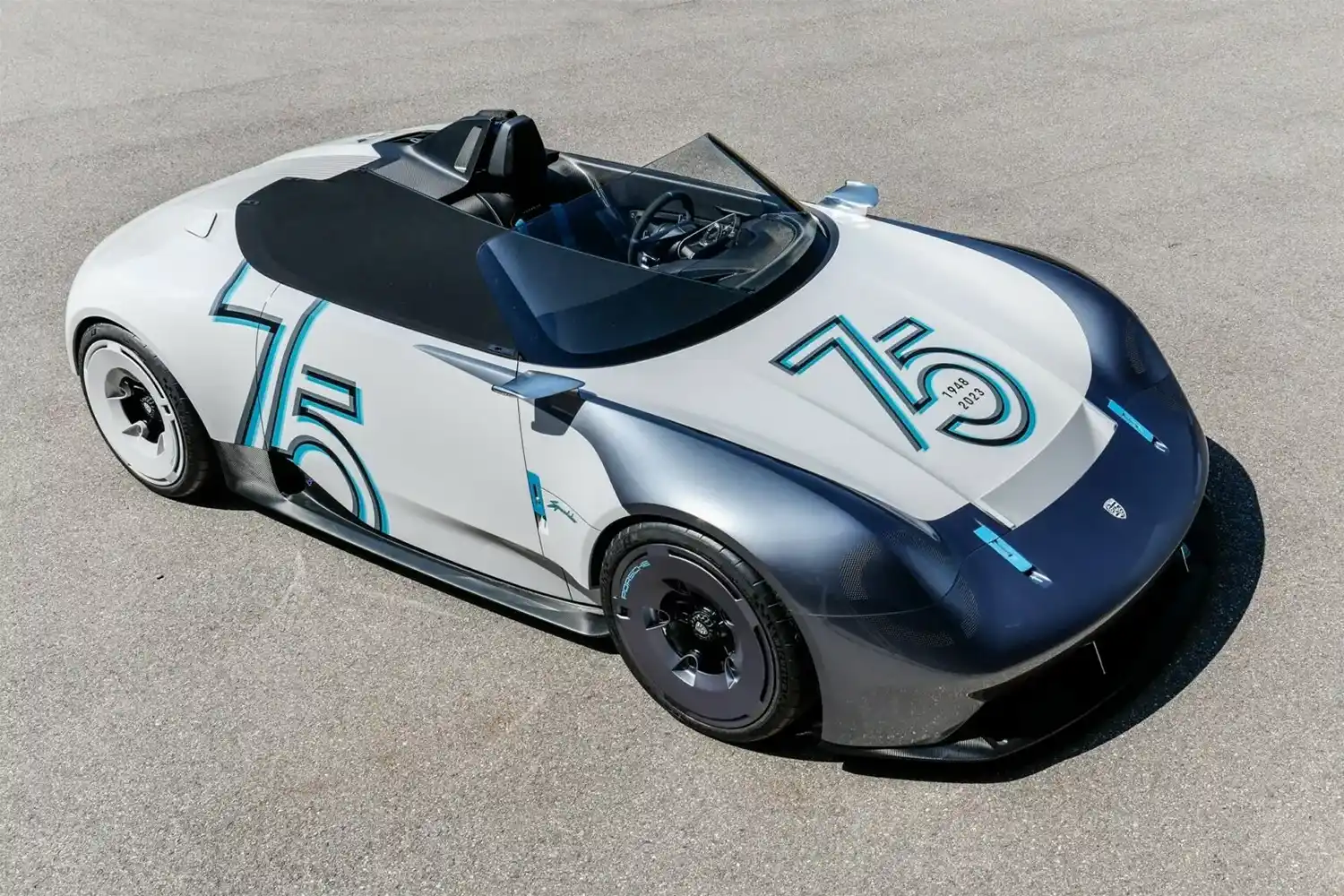
The two-colour concept with the two grey tones Marble Grey and Grivelo Grey Metallic is inspired by historic motorsport forerunners, such as the front fenders used to protect against flying rocks in race scenarios and the front wings, which feature the darker Metallic colour. The front wheels are also painted in Grivelo Grey Metallic. This is complemented by contrasts in Miami Blue, for example on the quick-release mechanisms on the wrap-around front bonnet.
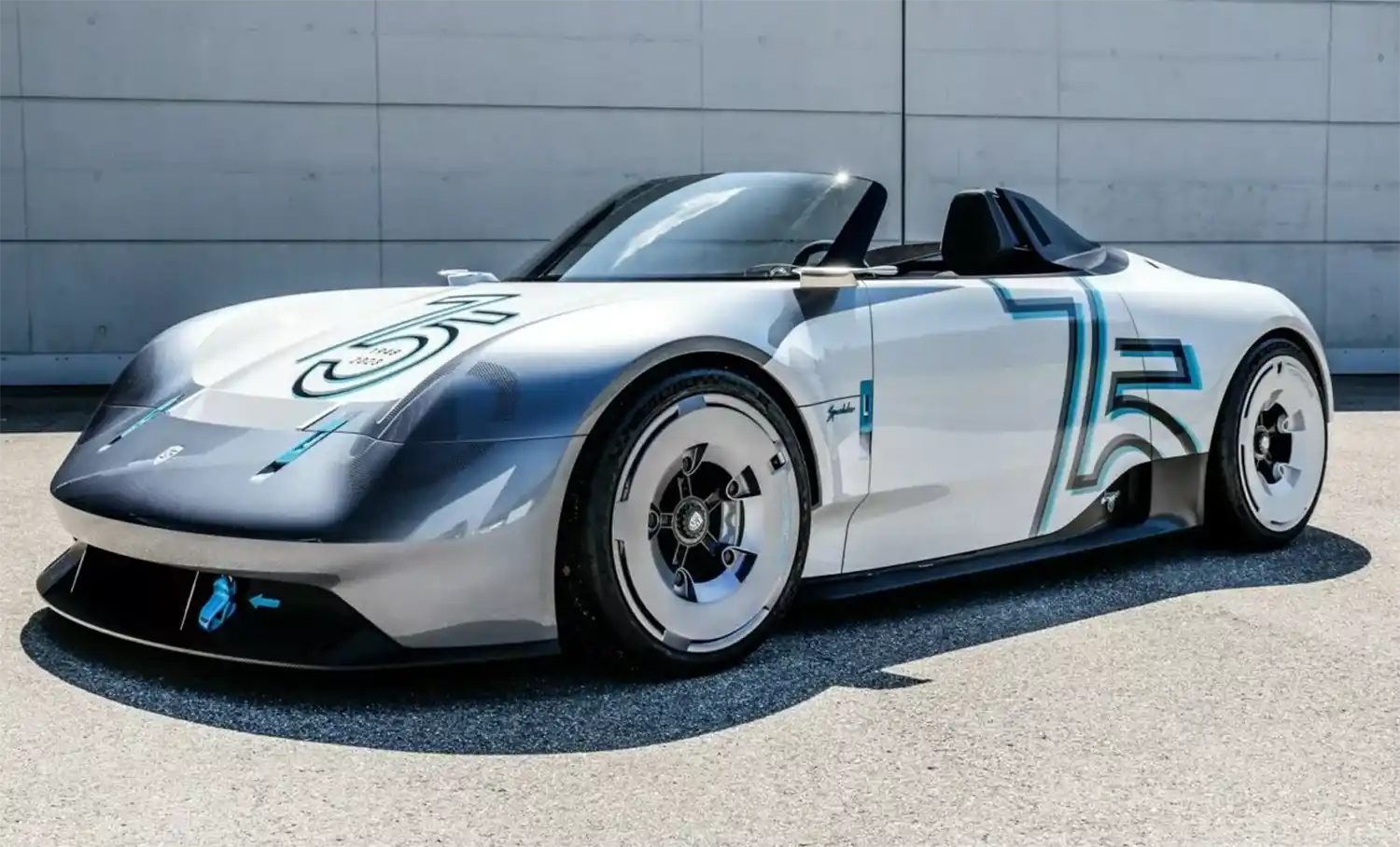
The anniversary logo with the large “75” and the two years “1948” and “2023” feature Grivelo Grey Metallic and Miami Blue – a fresh alternative to the decorative elements of the coupé Vision 357, where red was used as an additional colour. Above this are comic-style unicorns in front of the rear wheels. The mythical creature was drawn specifically for the concept car by Porsche designers, who also put their hand to the punchy “Speedster” logo. Cameras replace the exterior mirrors. As in the classic forebears, they are not positioned on the doors, but further forward on the fenders. In the open-top 357, they feature a new, aerodynamically optimised shape reminiscent of wings.
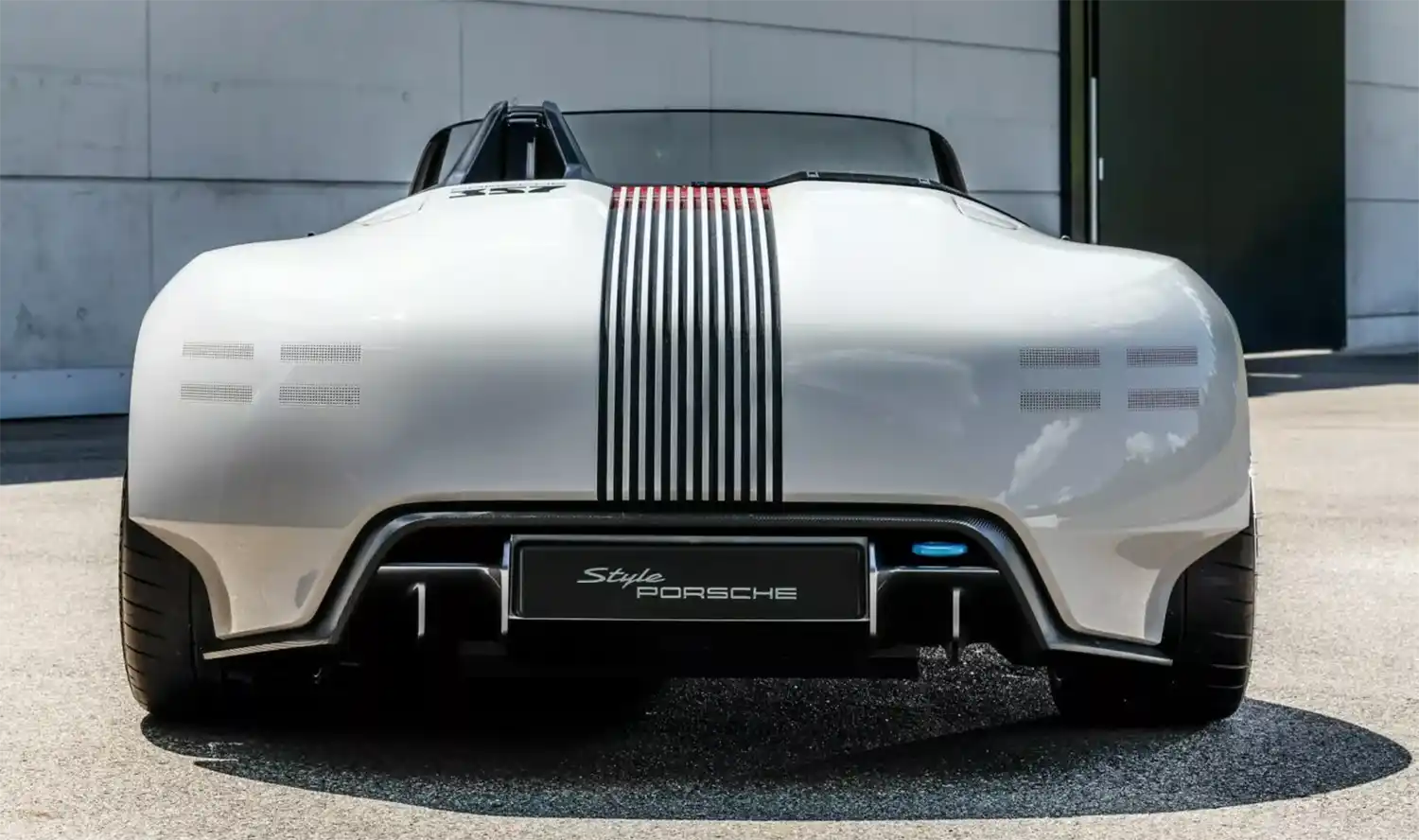
Other details of the exterior design are familiar from its sister concept car: the four-point light signet on the front features a round design evocative of the Porsche 356. The rear lights sit behind a patterned array of points milled in the body itself. Another nod to the first Porsche model line is the vertical grille pattern in the rear. The third brake light is integrated in the grille design.
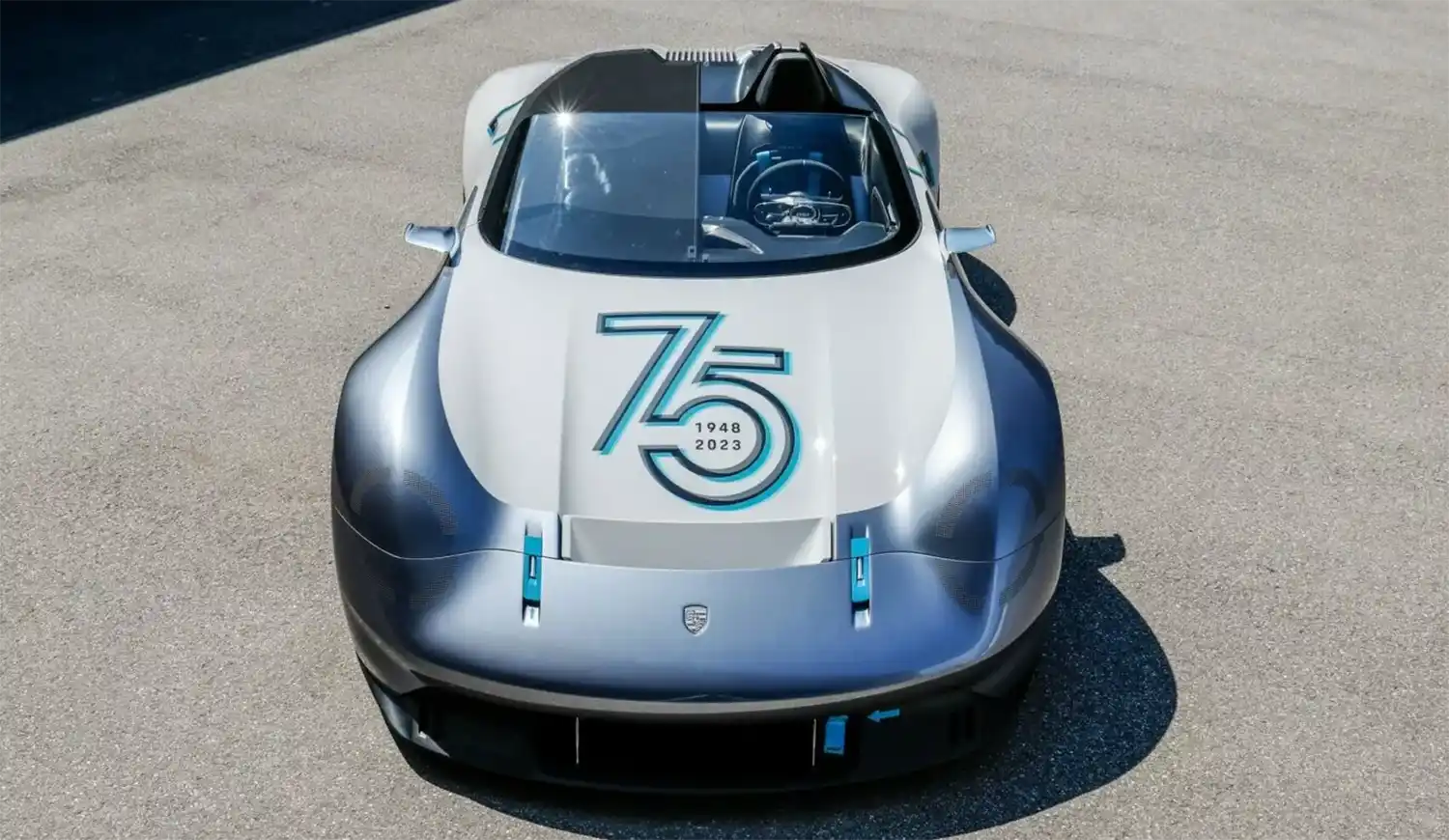
The wide track makes a bullish impression and enhances driving stability. The 20-inch wheels are made of magnesium and are equipped with carbon fibre hubcaps and central locks. Visually, they also recall a legendary Porsche wheel: the 356 A and 356 B with drum brakes had rims with the notably large bolt circle of 205 millimetres.
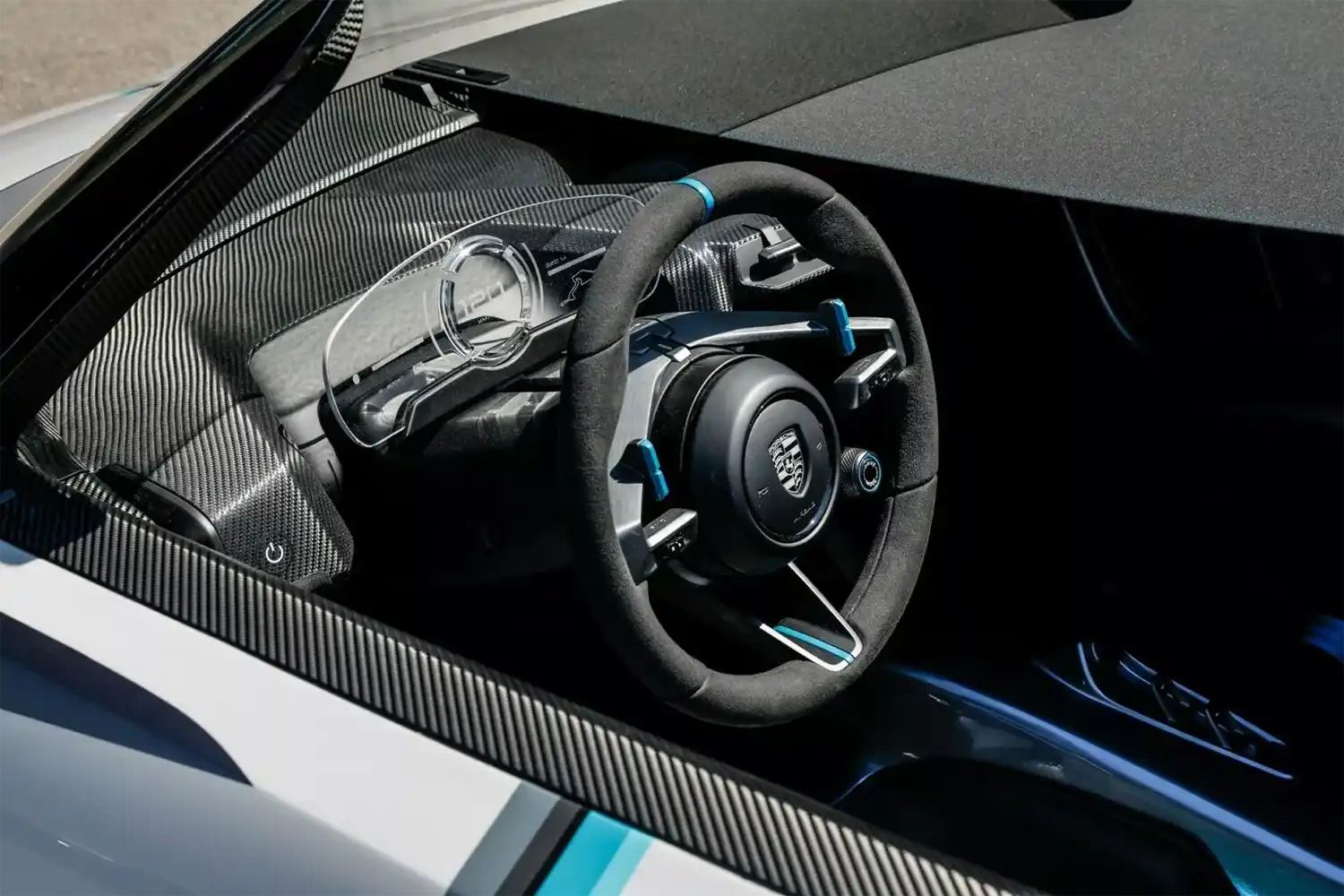
Interior design: purist, reduced cockpit
The interior is reduced to the essential and fully tailored to the driver. The low-slung seat position is quintessentially sporty. The CFRP seat shell is integrated in the monocoque. The driver sits on Racetex-covered pads and held firmly in place by six-point seat belt with a Miami Blue belt strap. The instrument cluster sits atop the steering column as a transparent surface. The racing steering wheel exemplifies lightness, while the impact absorber appears as if suspended. The individual controls, meanwhile, revisit the accent colour Miami Blue from the exterior.
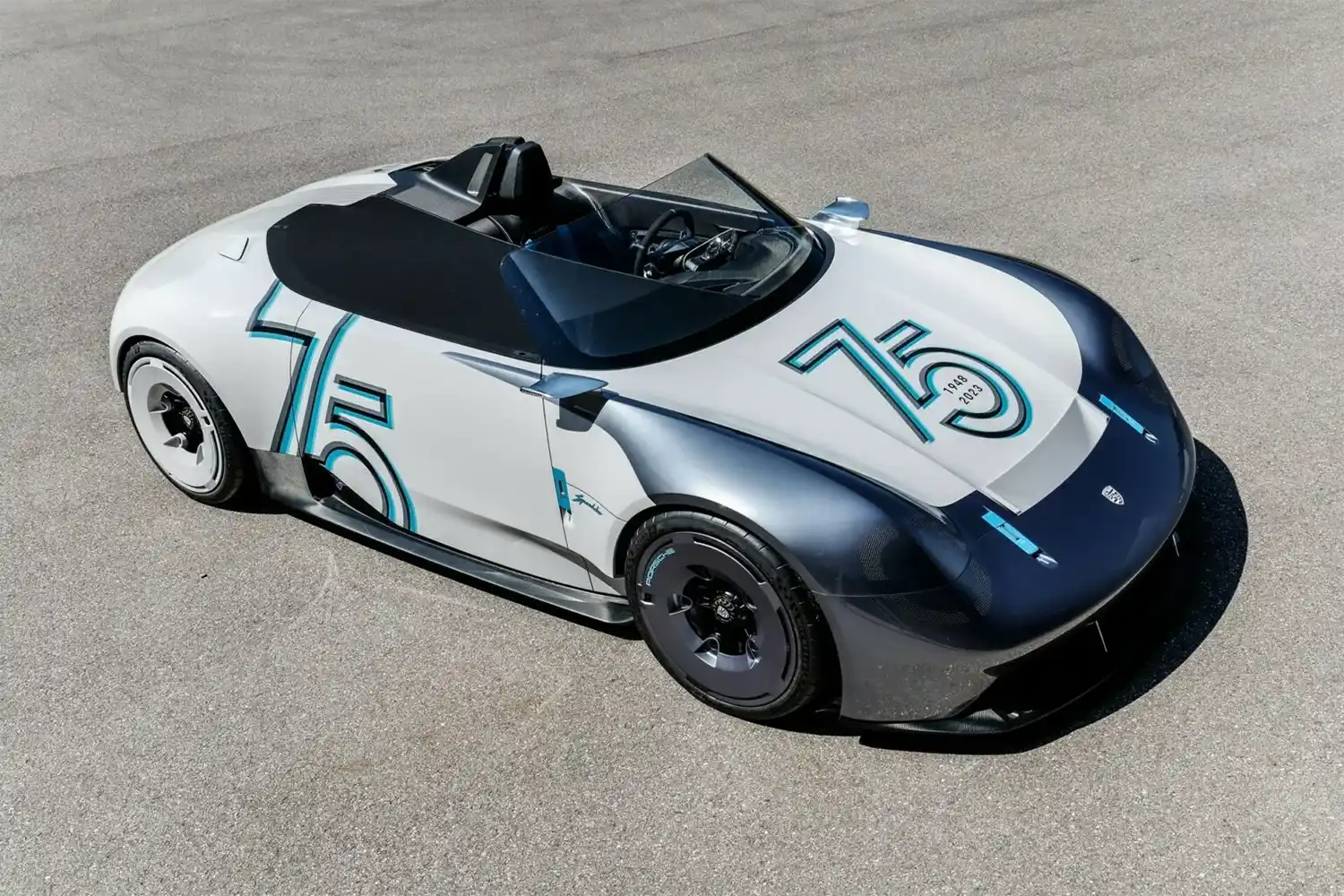
The entire dashboard is in a carbon-weave finish. As an alternative to a conventional glove compartment, Miami Blue straps in the upper right section can be used to secure accessories. Simple fabric straps replace conventional door handles. This detail from the racing milieu saves weight.
